
Cambodia
This beautiful south east Asian country is home to the world heritage site of Angkor Wat and the horrors of the killing fields and the Khmer Rouge.
We entered Cambodia through the land border with Vietnam at Bavet. We had caught a public bus from Ho Chi Minh City but had spent quite a while at the Cu Chi Tunnels (The tunnels used by the Viet Cong during the Vietnam war) on route so we had got to the border quite late. We were expecting to get straight on a Cambodian public bus that would take us straight to Phnom Penh, but to our astonishment all buses running from the border to Phnom Penh had been cancelled and we were now stuck in this border gambling town, 100 miles from where we wanted to be! We walked down the main RN1 for a while but noticed several private coaches passing us but heading into a rest stop a little way in front of us, so a bit of quick thinking I ran to catch up with one of the coaches and spoke to the driver, I managed to barter 2 seats on his coach for the 100 miles straight to Phnom Penh city centre for $10 each!
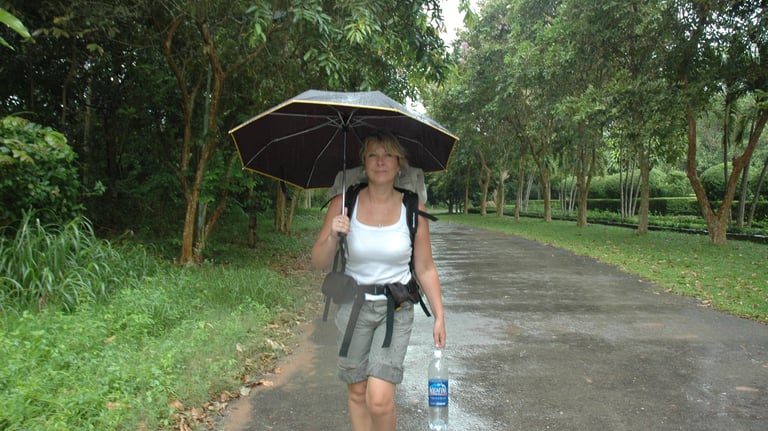

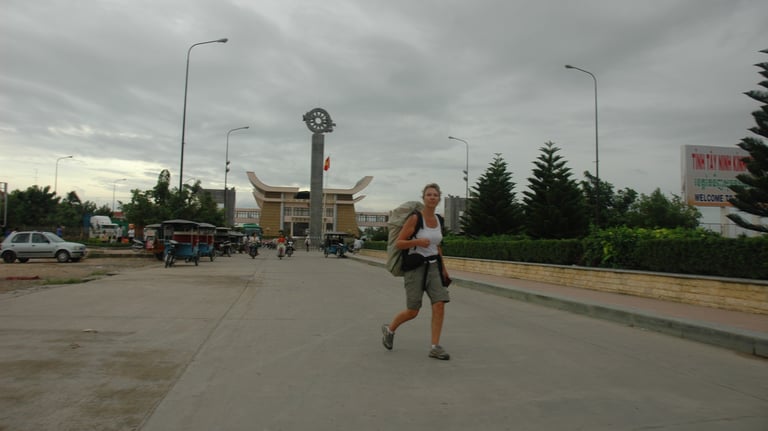

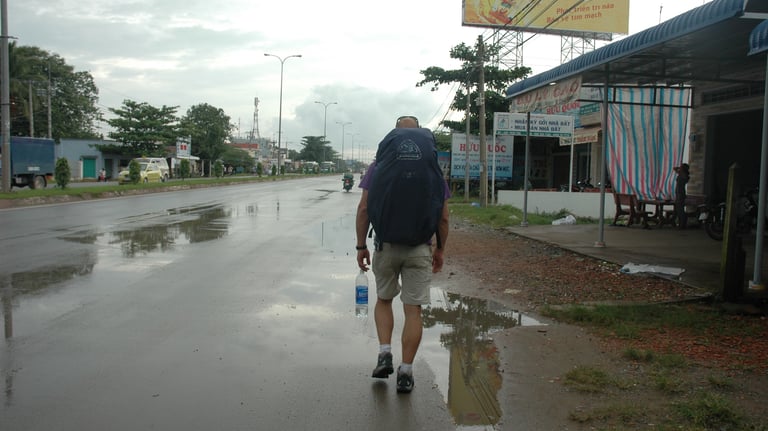

We got to the city and checked into a hotel in the centre, but as it was late we pretty much went straight to bed as we planned a busy couple of days exploring the sights. However we were rudely awoken at around 6:00am the following morning by builders bashing and crashing on the floor below our room as they seemed to be refurbishing all the rooms on the floor below. So our first job was to move to a quieter (and cheaper) hotel around the corner and then on to explore, so we jumped on a tuk tuk and went off to the Tuol Sleng Genocide Museum, a former school turned security Prison by the Khmer Rouge also known as S21. This museum tells the incredible story of the torture and murder of thousands of prisoners over the four years of its operation, sometimes whole families were tortured and executed. It also tells the stories of some of the torturers, forced to do their work by the Khmer regime or facing death themselves, many of whom could now be working in the city as shop owners or tuk tuk drivers or teachers!
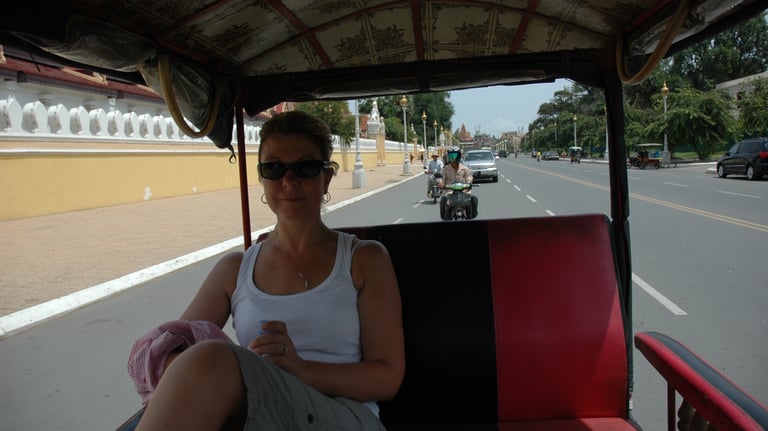

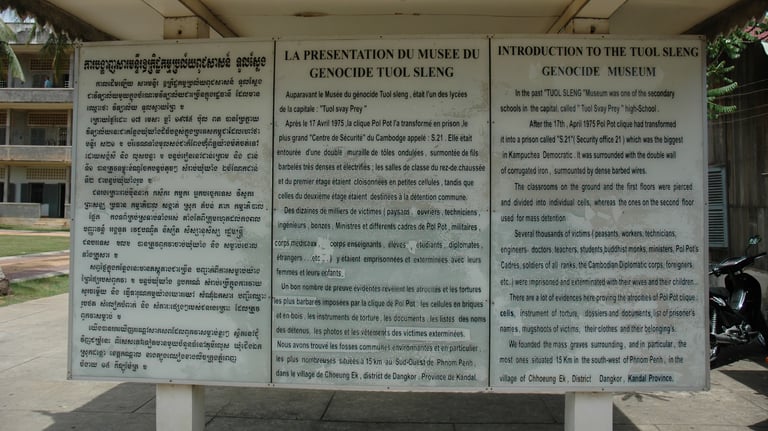

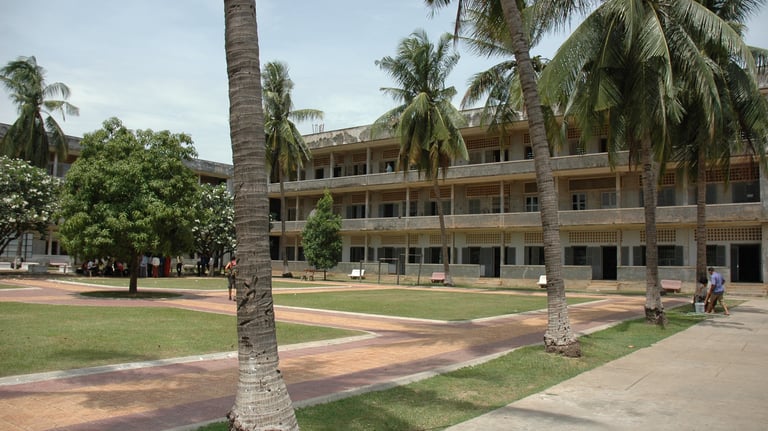

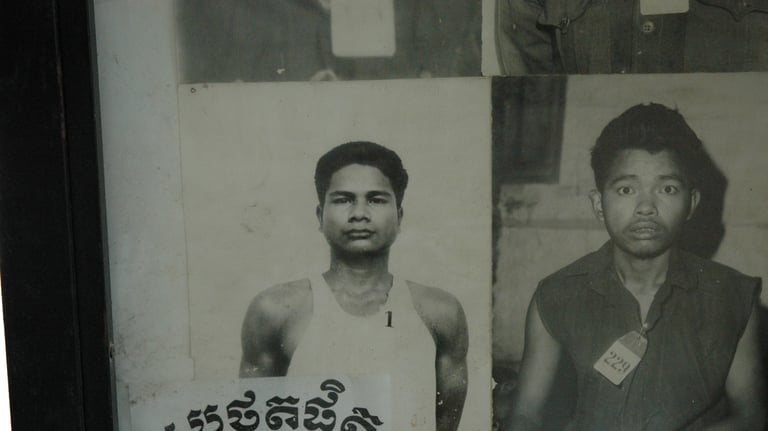

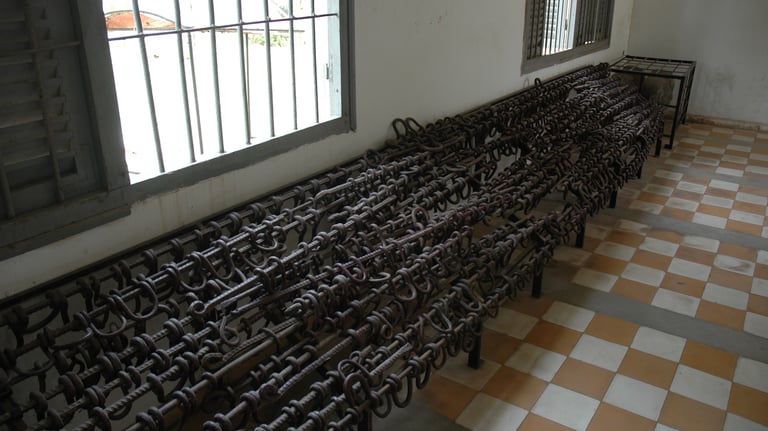

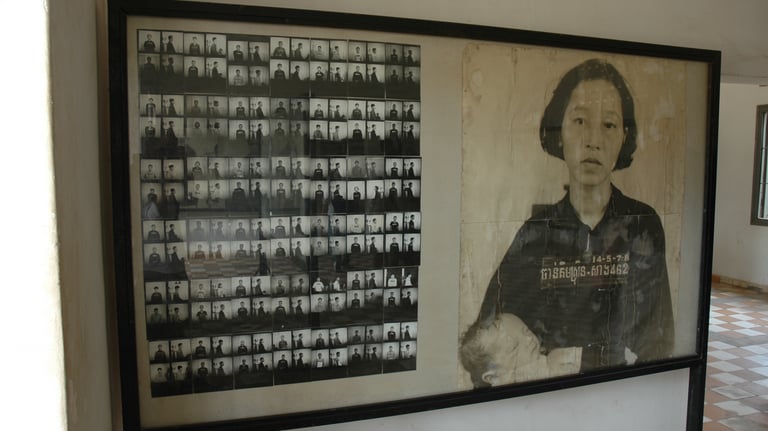

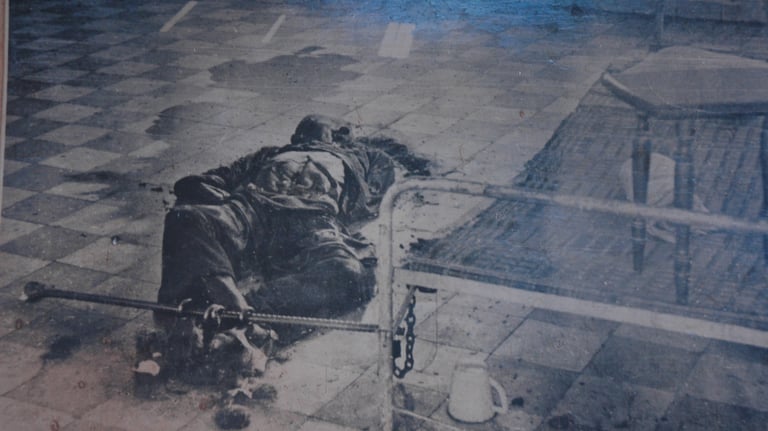

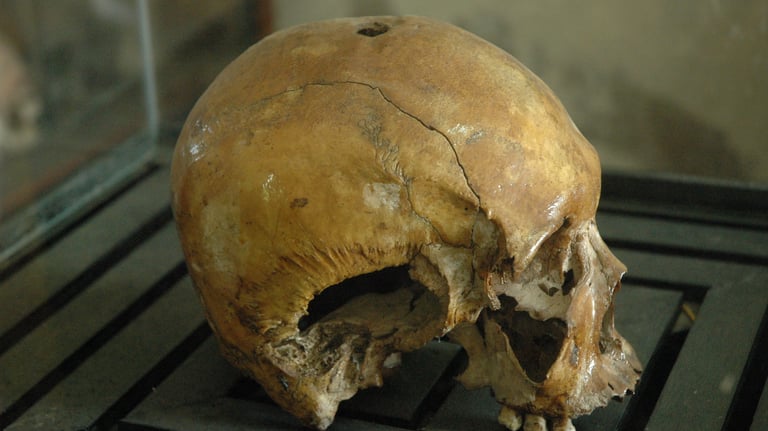

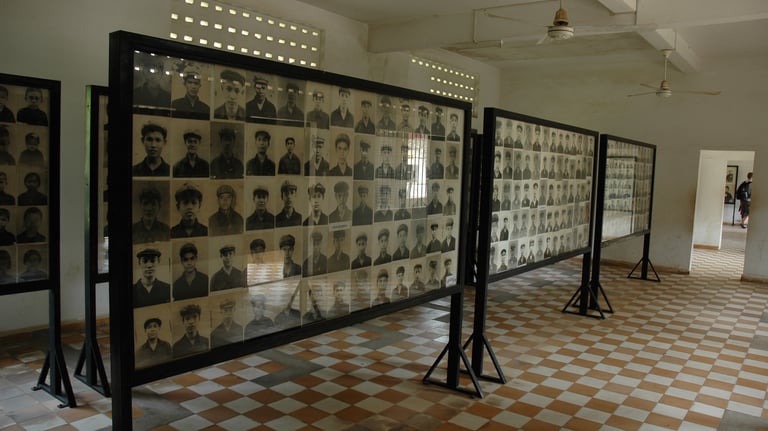

Following the S21 museum we took a tuk tuk out to the Choeung Ek Genocidal Centre, This place was like nowhere we had ever been before, it is one of the former execution sites of the Khmer Rouge known collectively as the killing fields. It is believed that over one million people were executed by the regime between 1975 and 1979. The site has a small centre that explains the atrocities that were committed and has a Buddhist stupa that contains over 5000 human skulls, victims of those murders. The Stupas windows are open allowing you to see the skulls close up, but it is also believed that this allows the souls of the dead to return to their mortal remains. Walking around the site there are pits where mass graves were uncovered, in one of the pits excavators found a pit full of bodies but no heads. We could see parts of human bone or fragments of clothing everywhere around the site either in boxes on display or literally lying on the floor around the site. Apparently more human remains are regularly uncovered after heavy rain due to the quantity of remains yet to be uncovered and the shallowness of the graves. Only a small amout of Choeung Ek has ever been excavated and there is believed to be thousands more bodies in the surrounding area, It`s quite a surreal experience sitting for a while and contemplating the horrors that took place at this site.
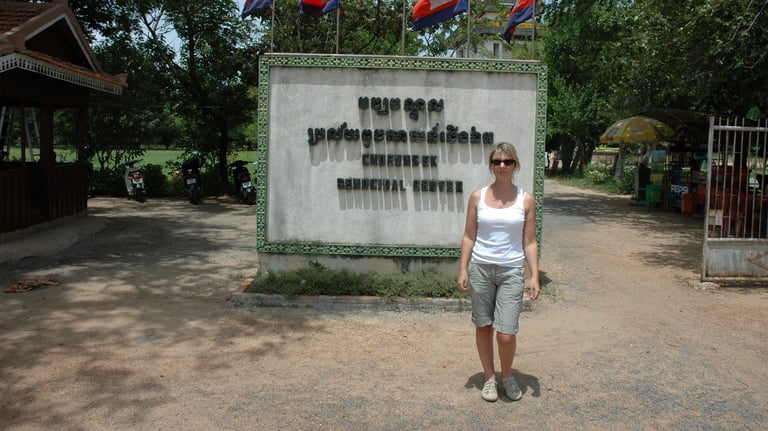

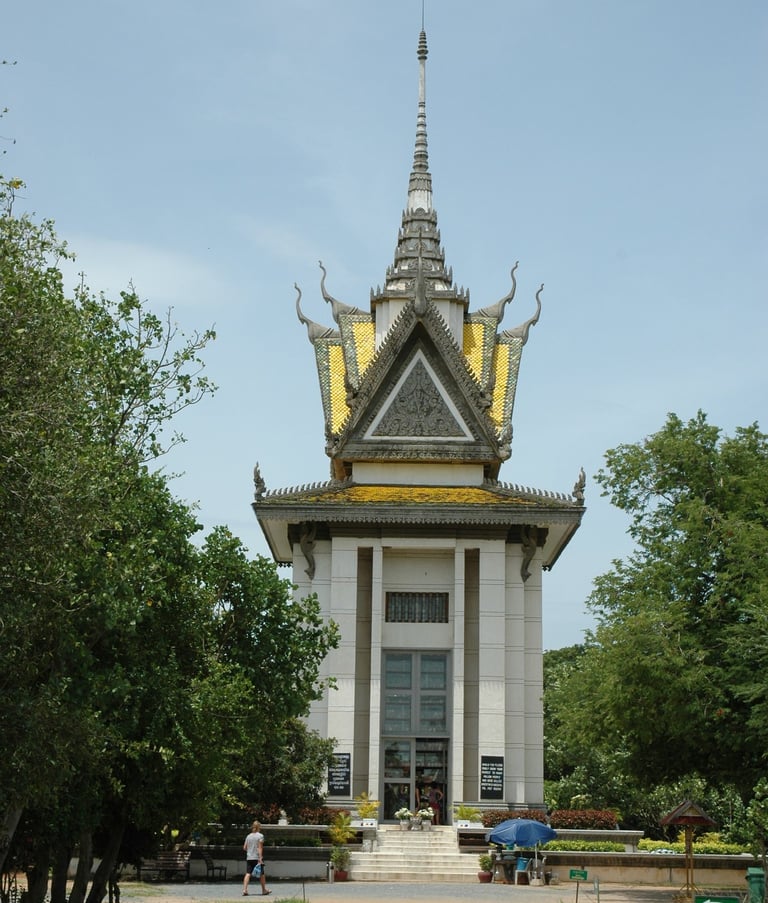

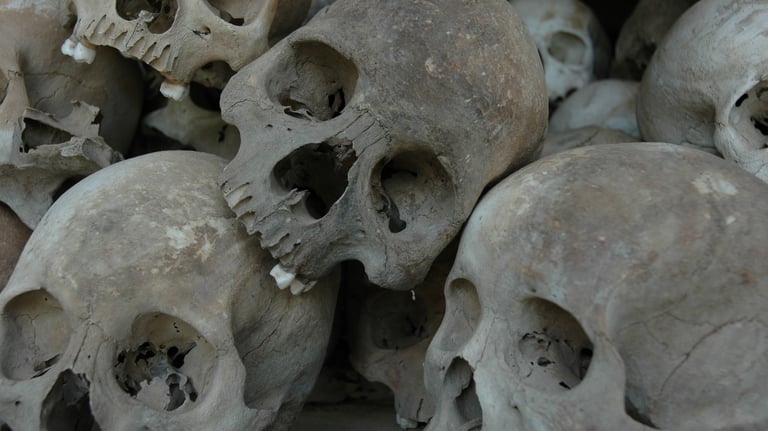

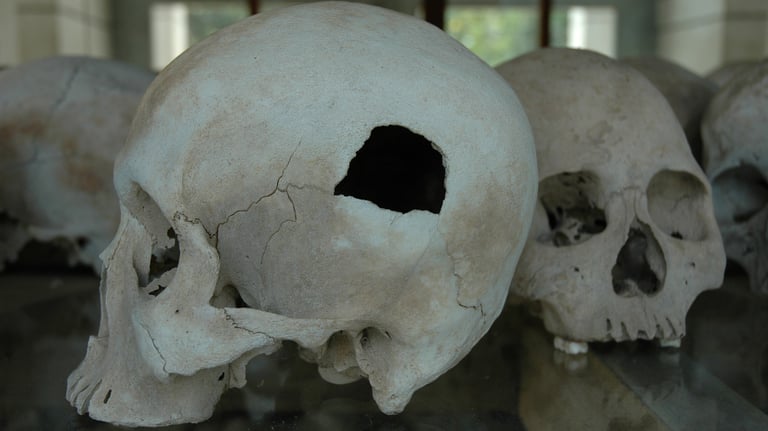

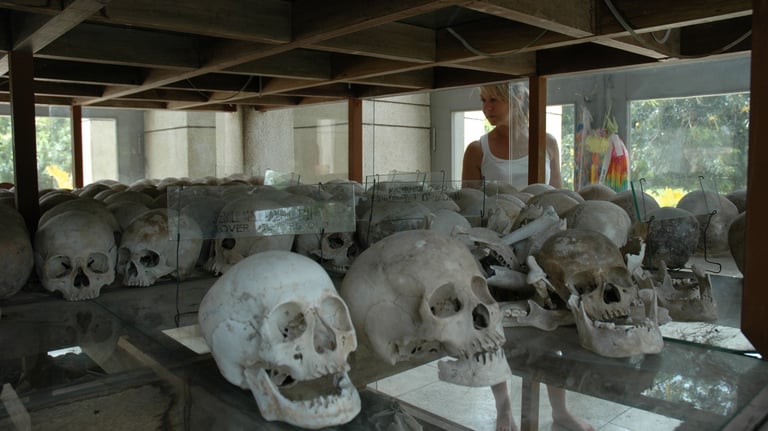

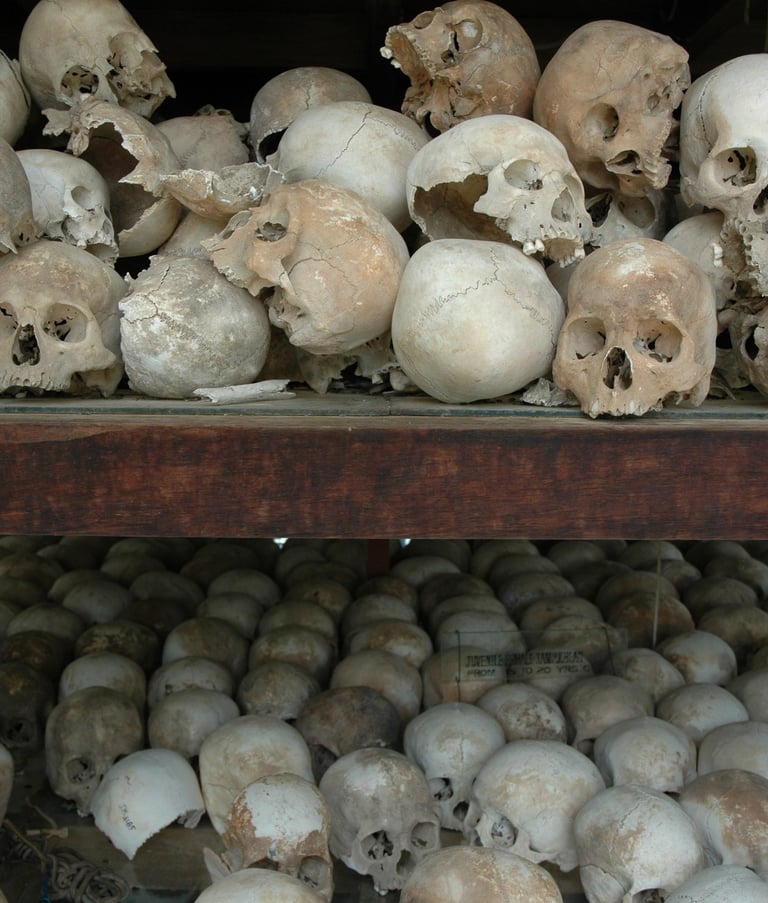

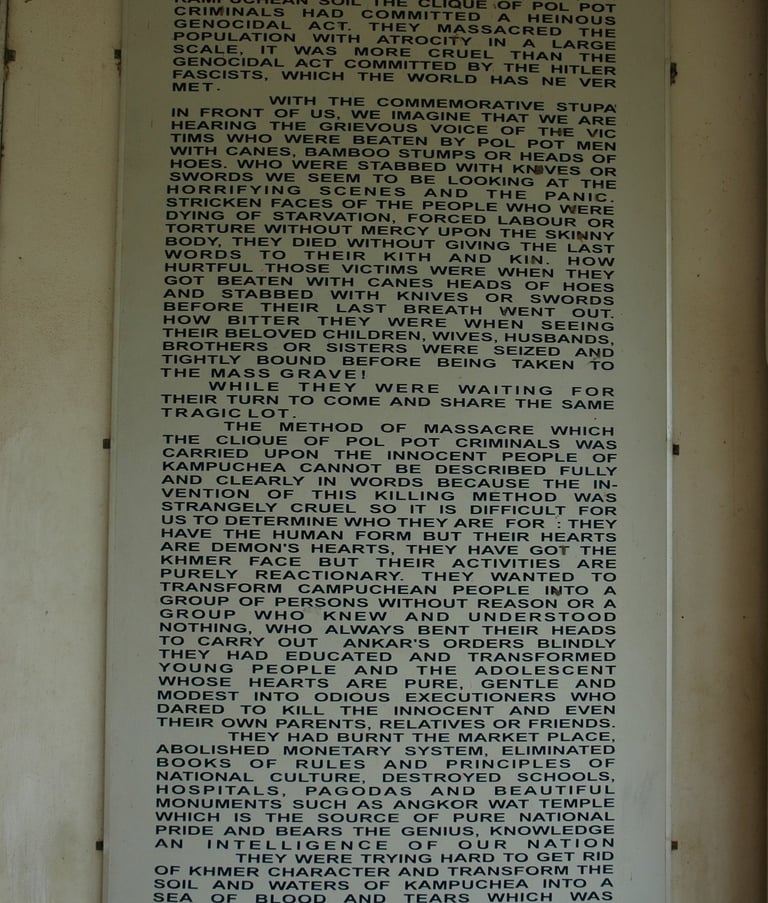

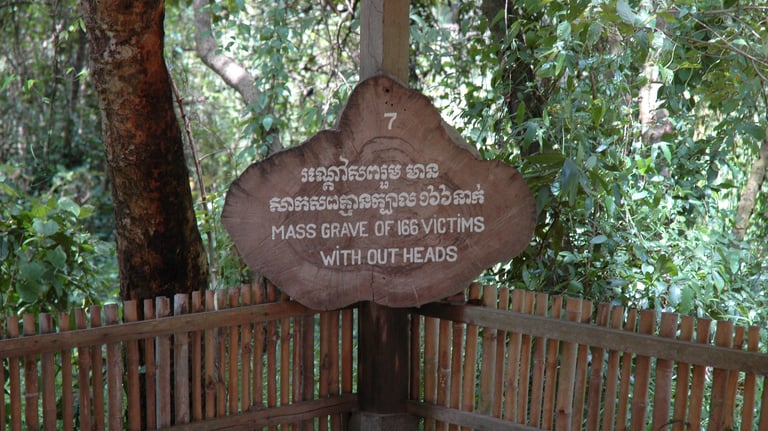

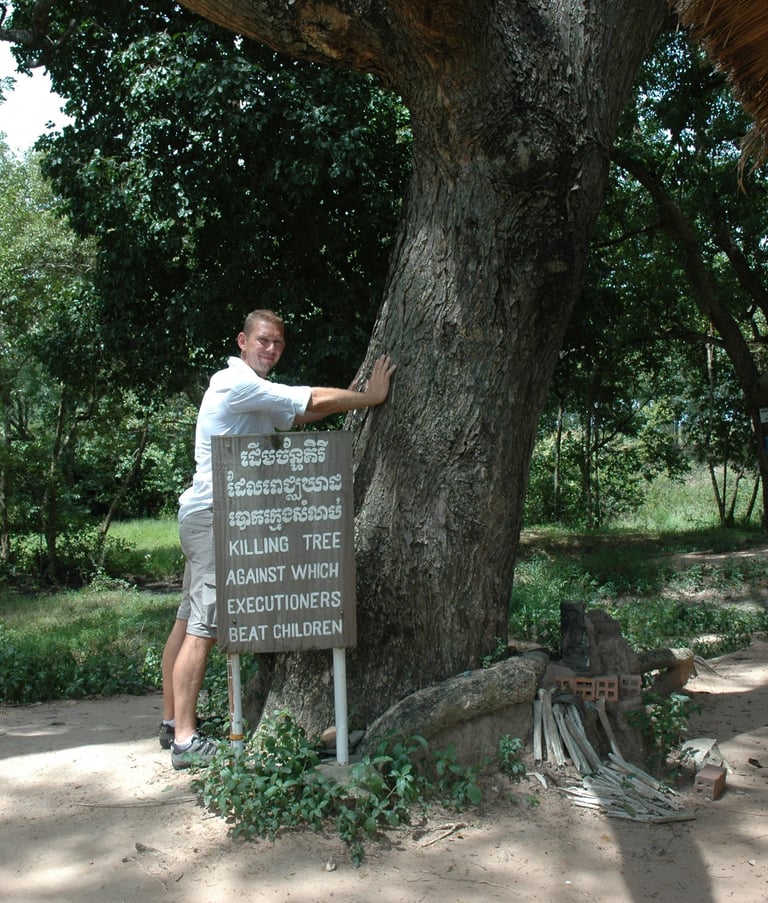

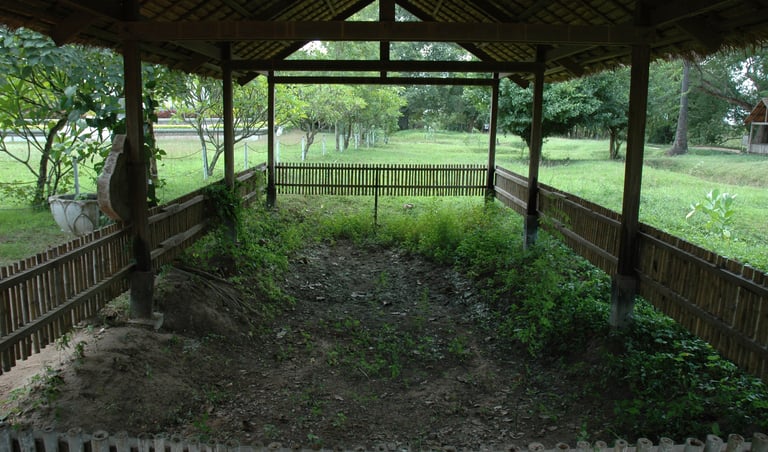

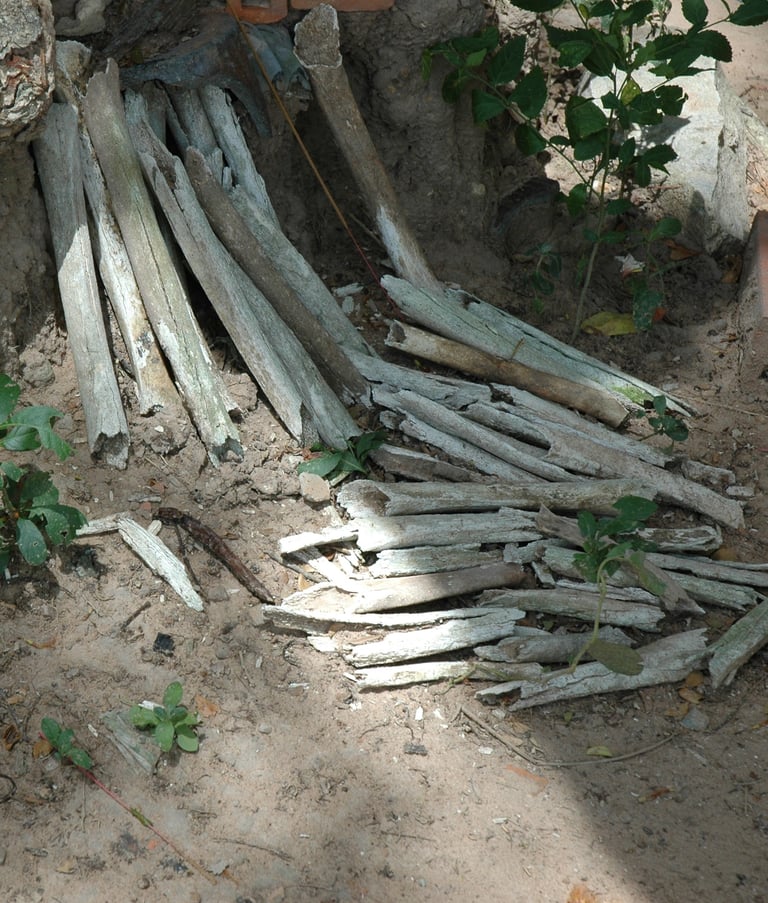

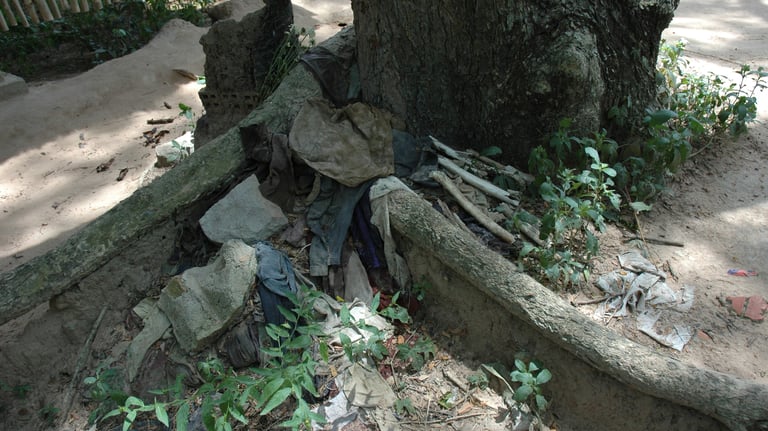

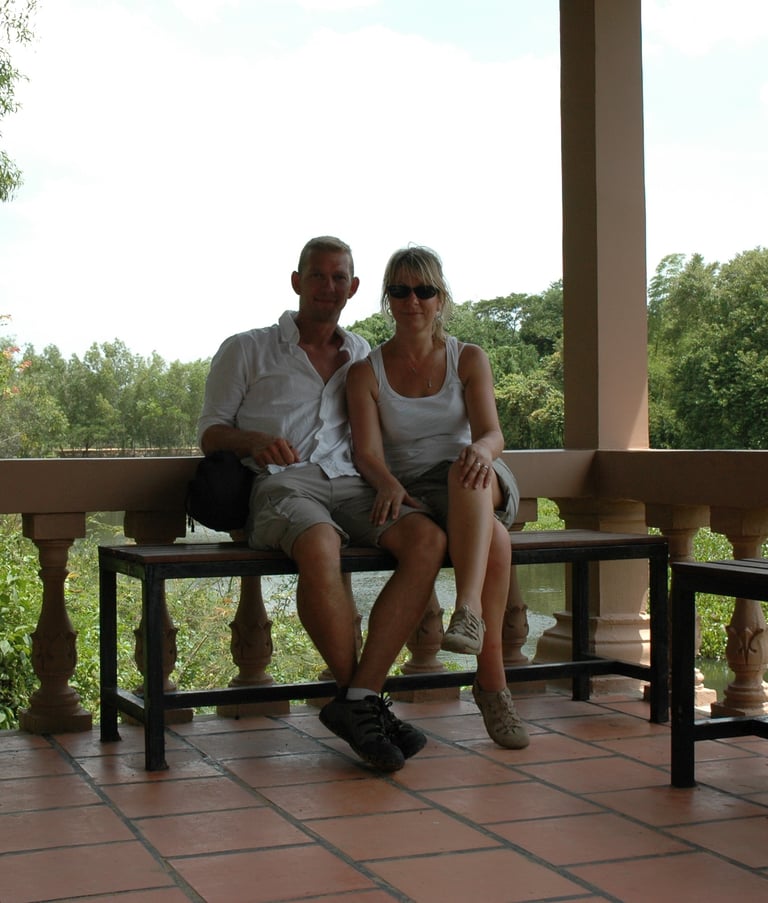

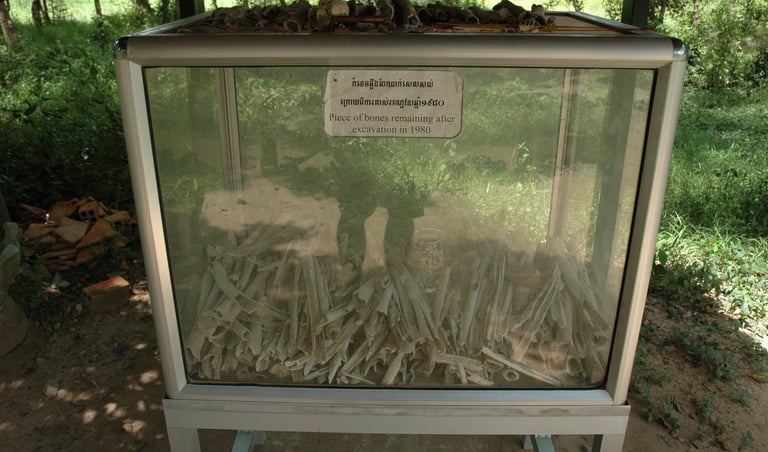

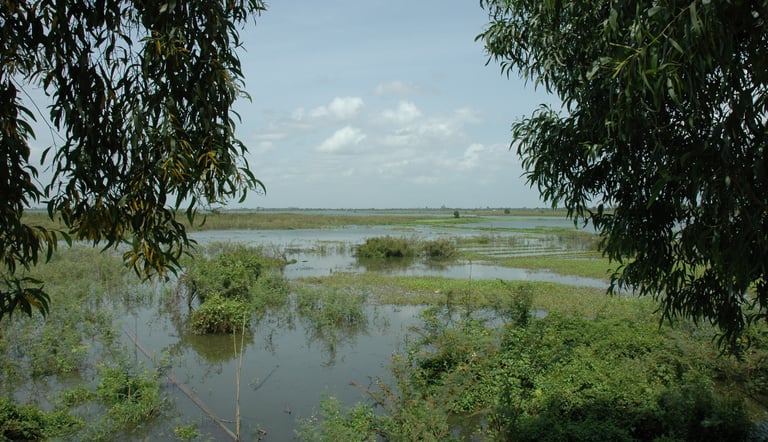

Following Choeung Ek we returned to the city for a well earned cold beer and a chill. The following day we had a wander around the area near the hotel and along the promenade by the Mekong river. There was a young boy fishing for terrapins so Tracey bought the basket full he had caught so she could release them into the river again (the boy probably caught them back again 5 minutes after we had gone.
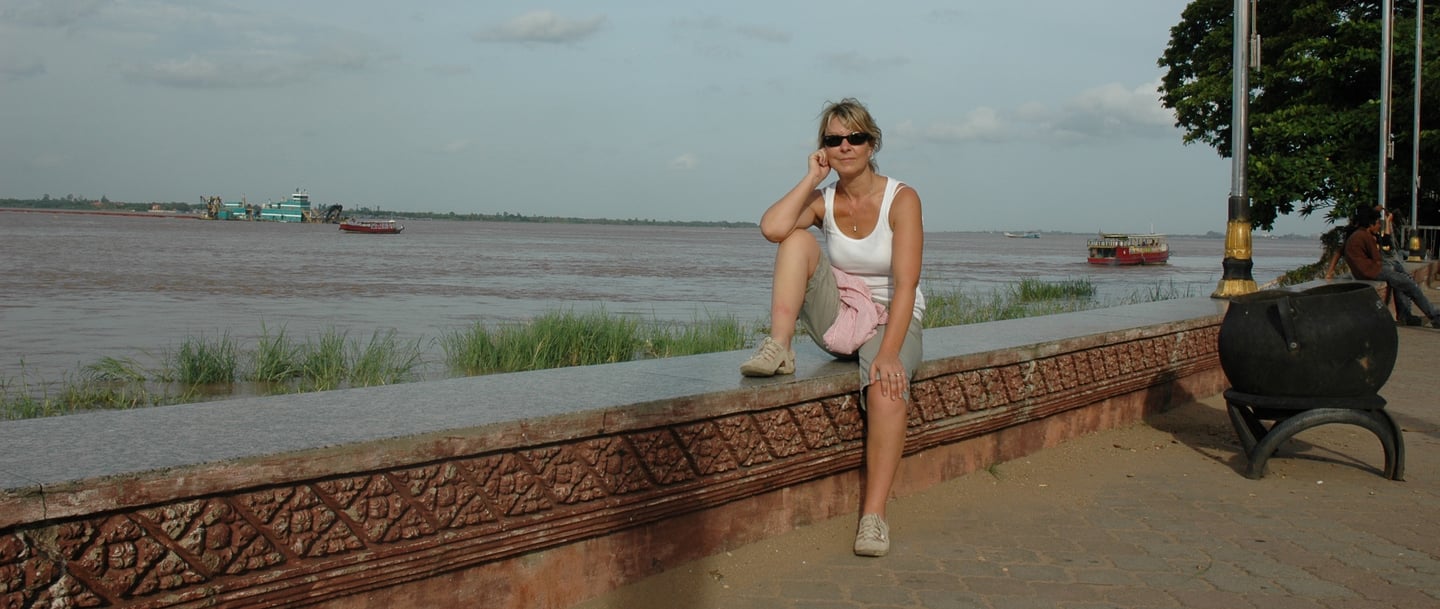

In the afternoon we walked over to the Royal Palace of Cambodia known in Khmer as the Preah Barom Reacheaveang Chaktomuk Serey Mongkol. This complex has been the home to the Cambodian Royal family since 1866 when it was built (apart form when the Khmer Rouge took over in the 1970's) and is made up of some beautiful buildings built in a traditional Khmer style and incredibly intricate stupas from former kings, well worth the visit.
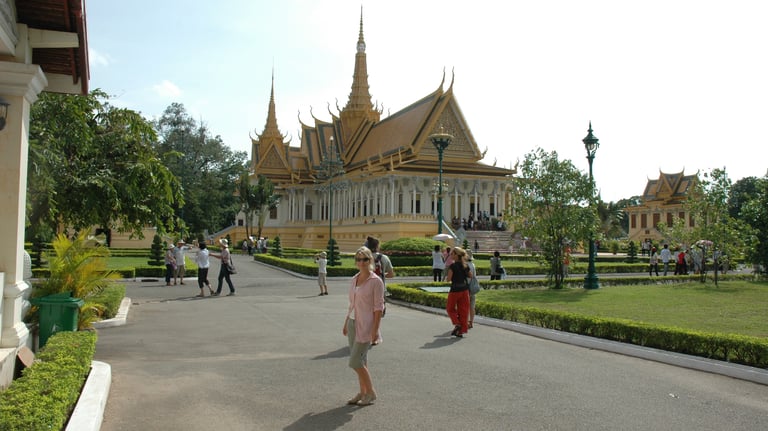

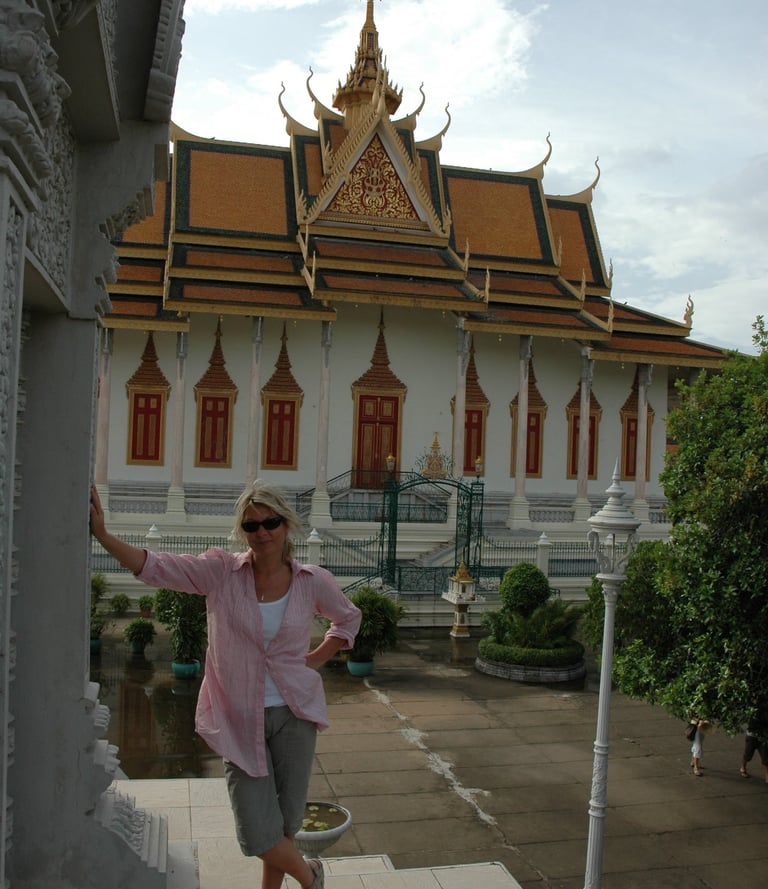

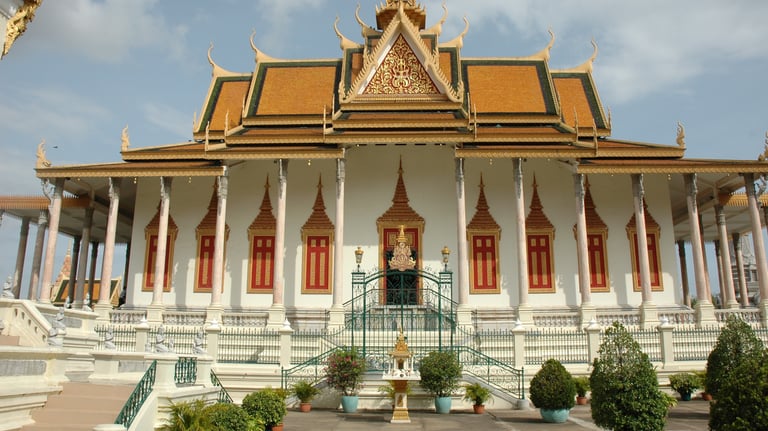

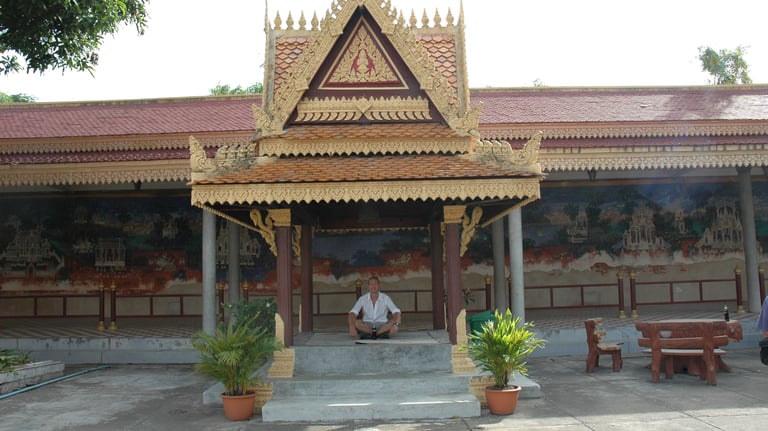

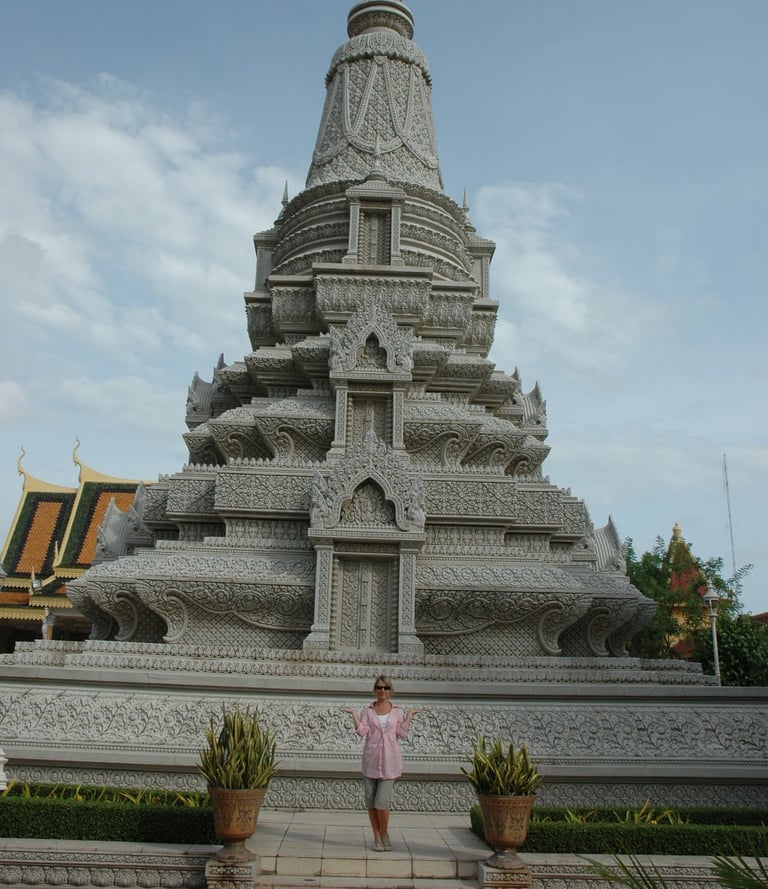

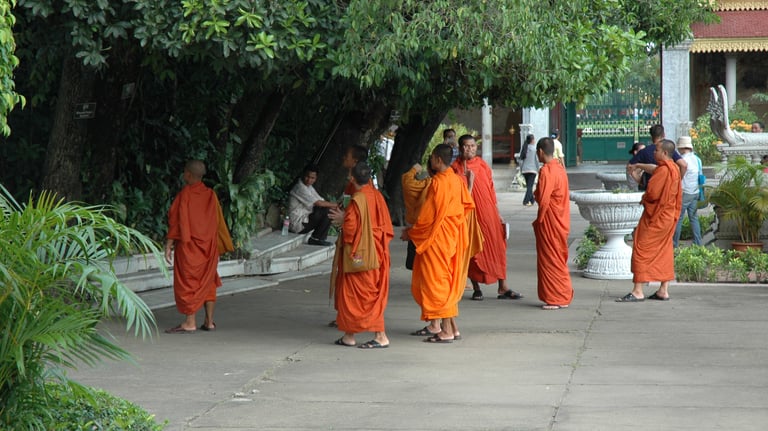

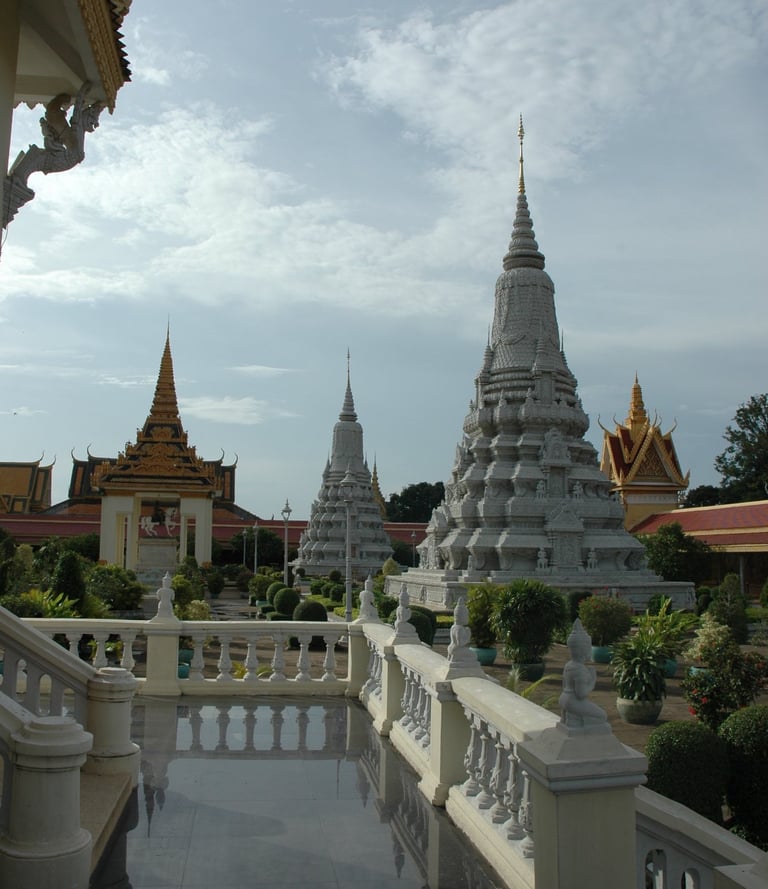

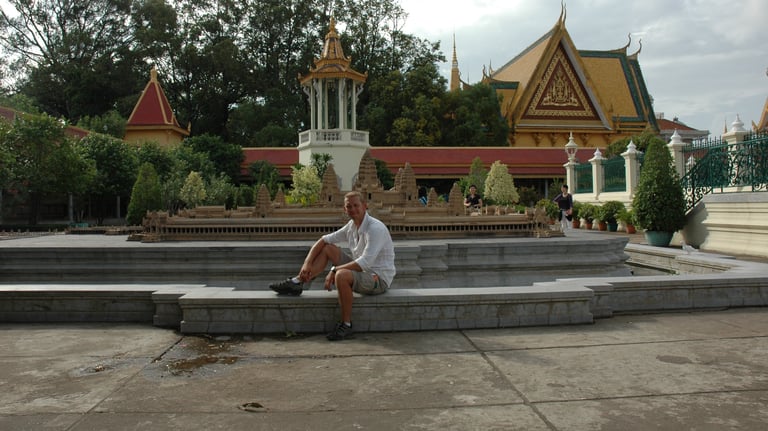

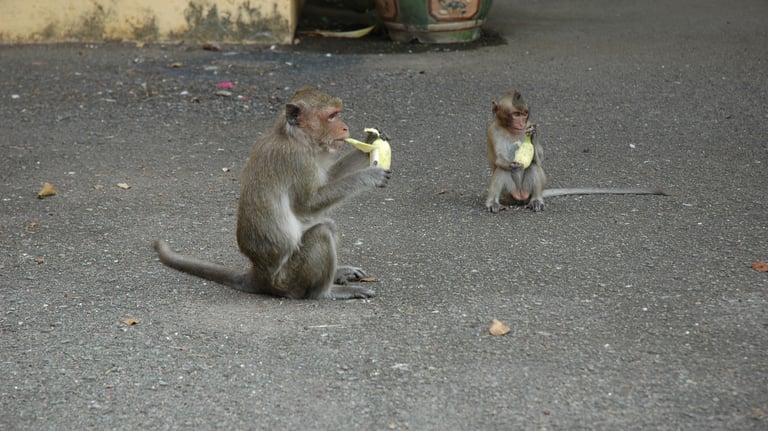

That night we had a wander around some of the night markets. The following morning we caught a bus from Phnom Penh to Siem Reap. There are a multitude of companies that run several times of the day and the 200 mile journey takes around 7 hours with a couple of comfort stops that cost us just $5 each! We got seats towards the back of the bus and were surprised when people and possessions kept coming in and piling up until you could no longer get off the bus. At each of our comfort stops we had to climb out of the opening window at the rear of the bus! At each stop there were plenty of options for a snack if you fancied a handful of deep fried zebra tarantula of a bag of freshly peeled fruit.
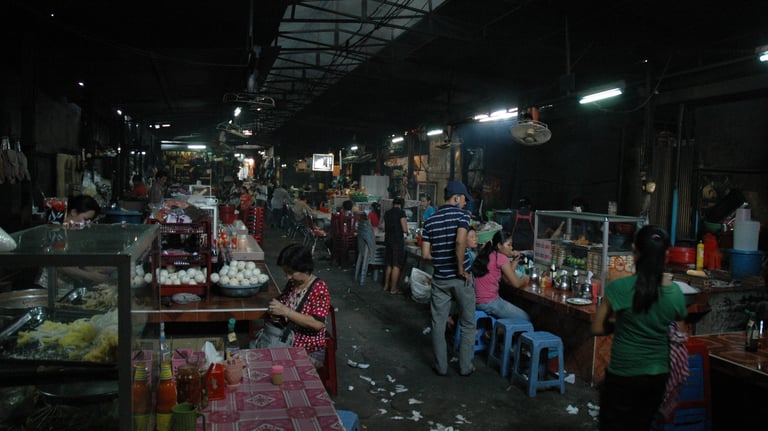

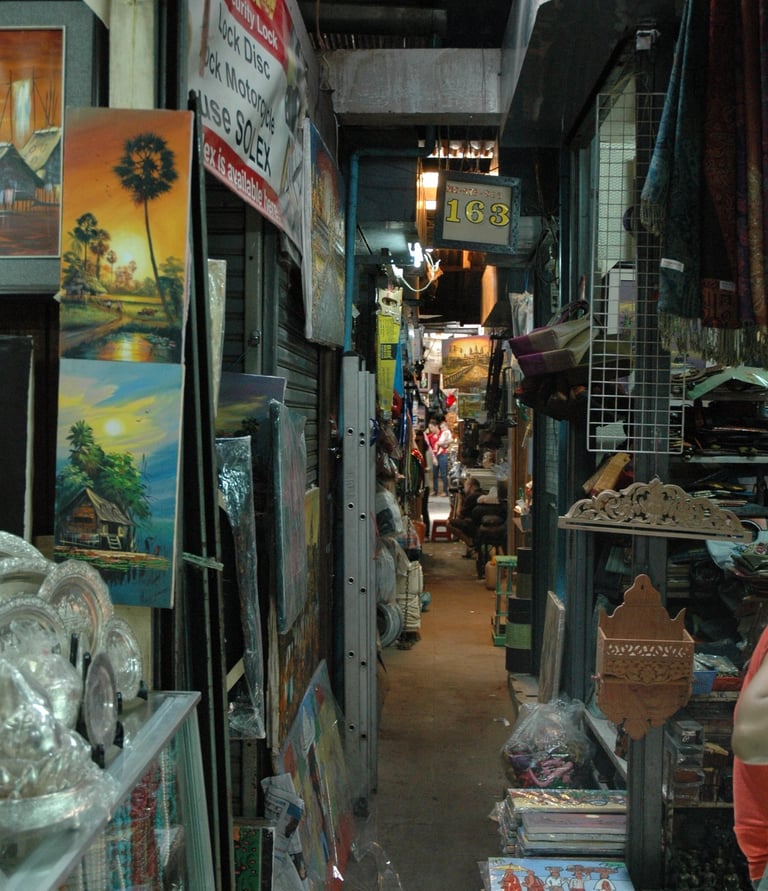

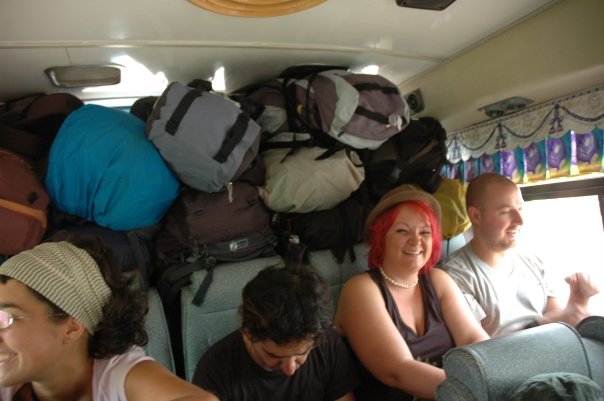

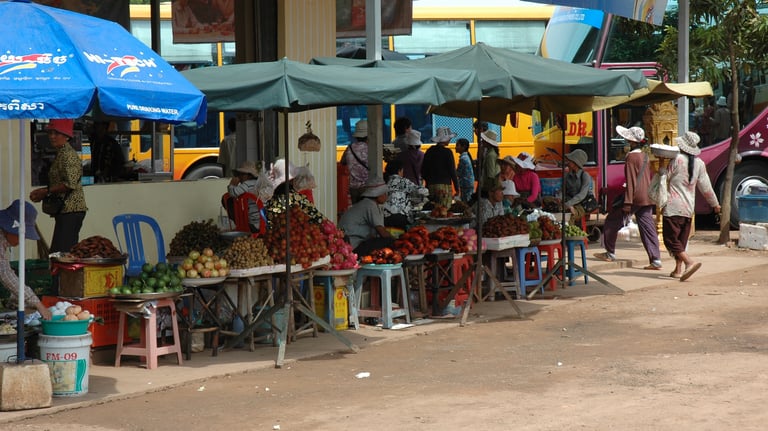

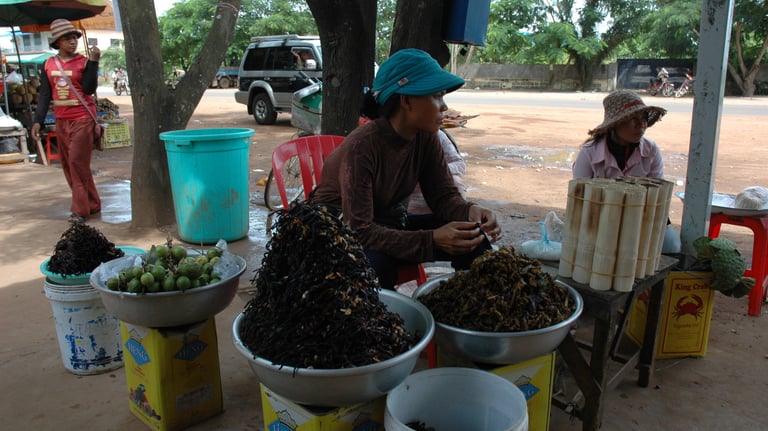

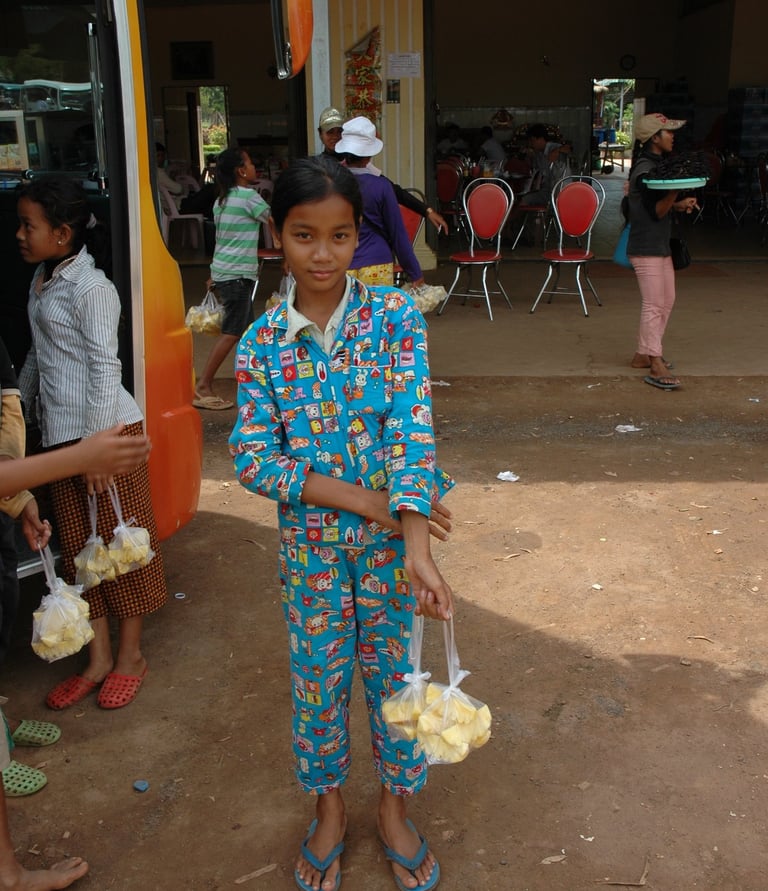

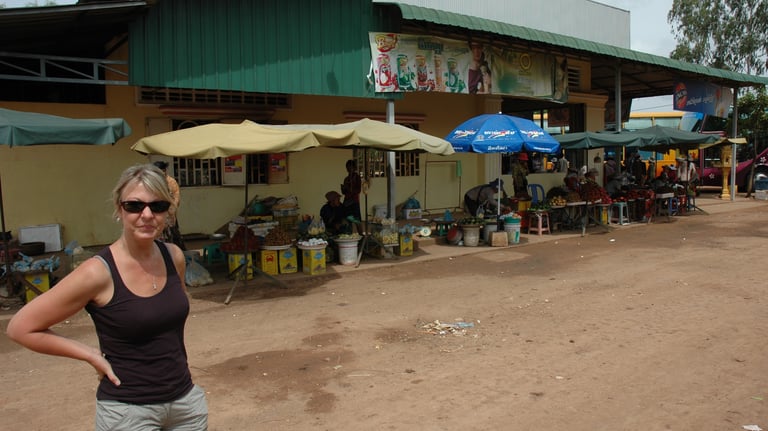

When we got to Siem Reap we found a hotel near Pub Street, a popular spot for tourists and after checking in we were keen to see Angkor Wat so we grabbed a tuk tuk for the 5 mile journey, but were really disappointed as the heavens opened with torrential rain, however our tuk tuk driver, after taking us back to town agreed to pick us up the following morning just before dawn so that we could watch the sun come up over this magnificent 12th century structure.
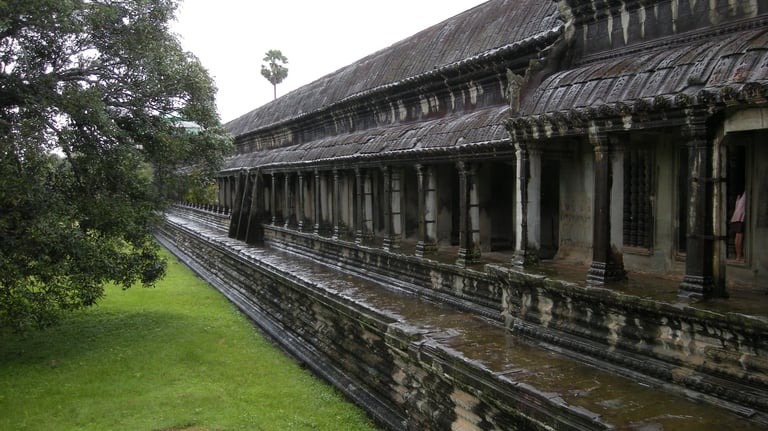

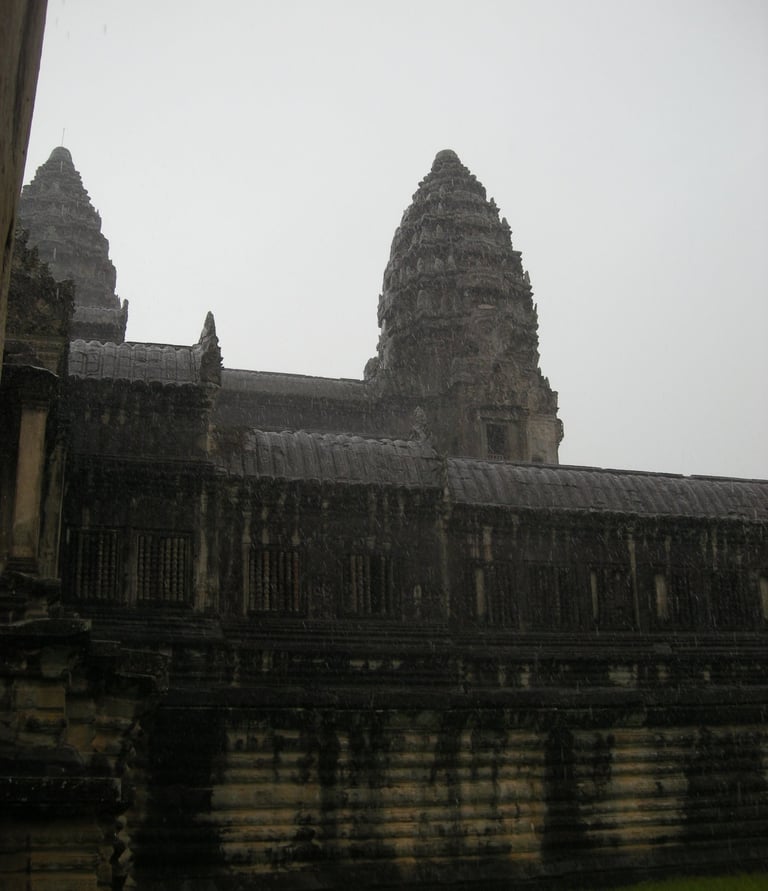

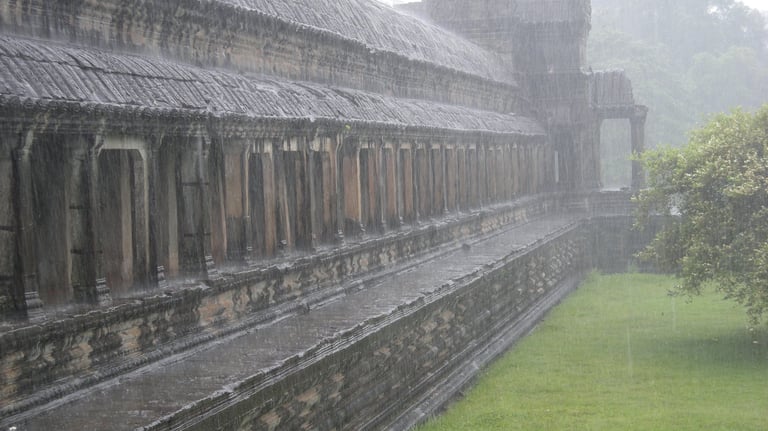

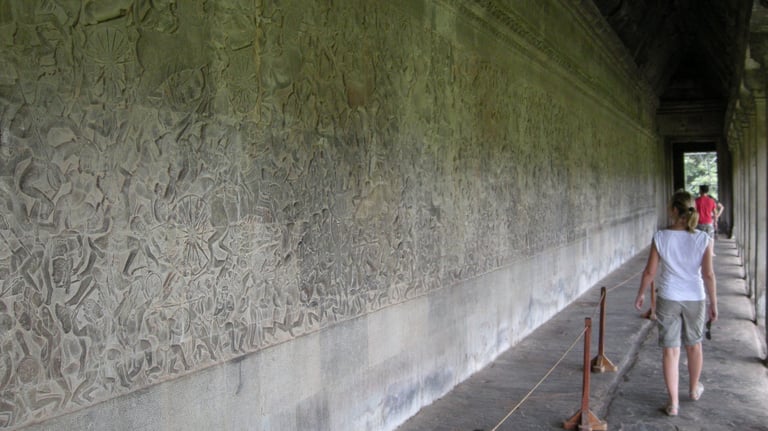

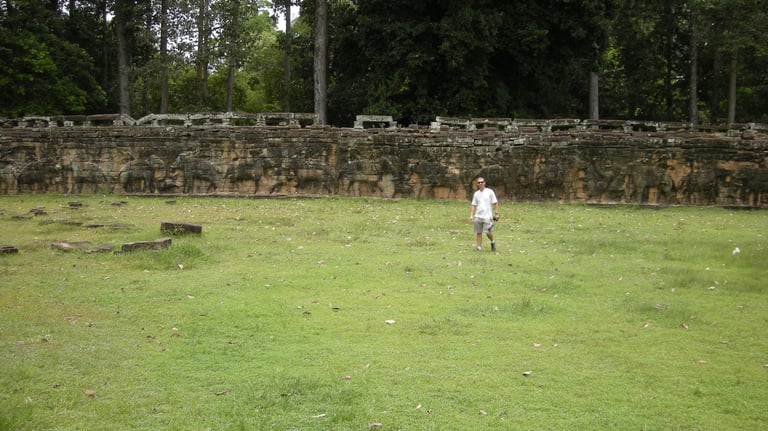

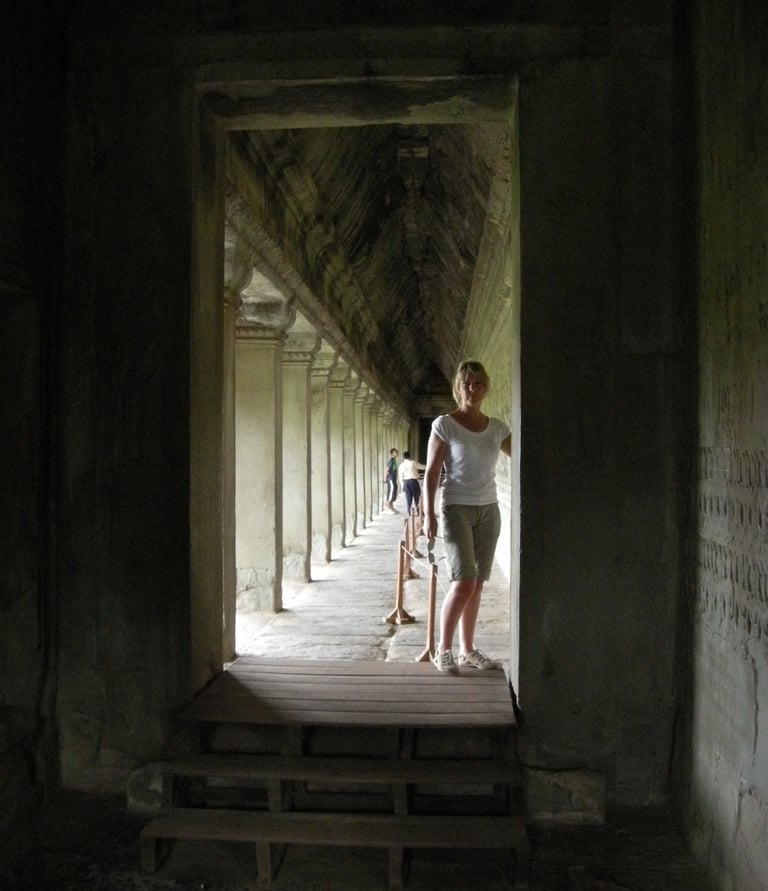

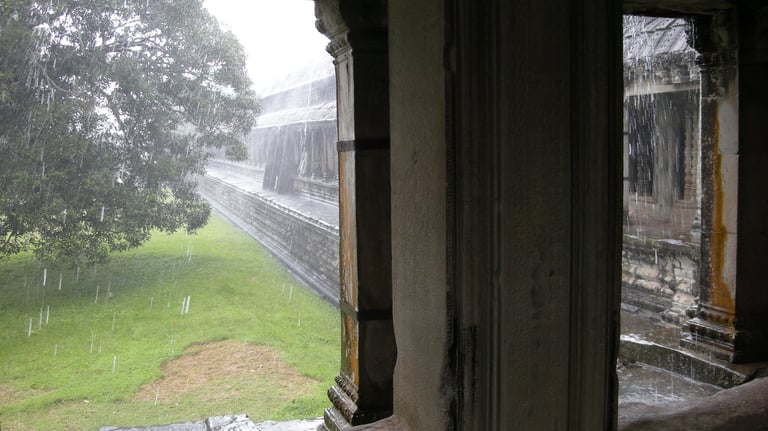

When we got back to town and after a long day on the bus we decided to have a few beers along Pub Street (Street 8) a lively part of town full of pubs and restaurants. Here we discovered a new way to clean your feet, let fish eat the dead flesh of them!
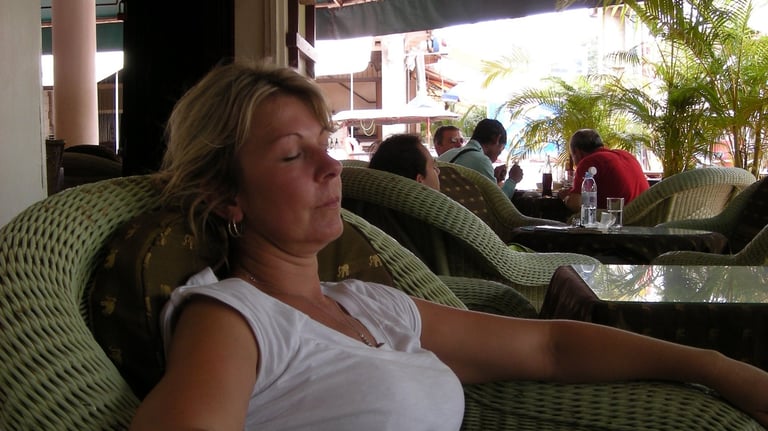

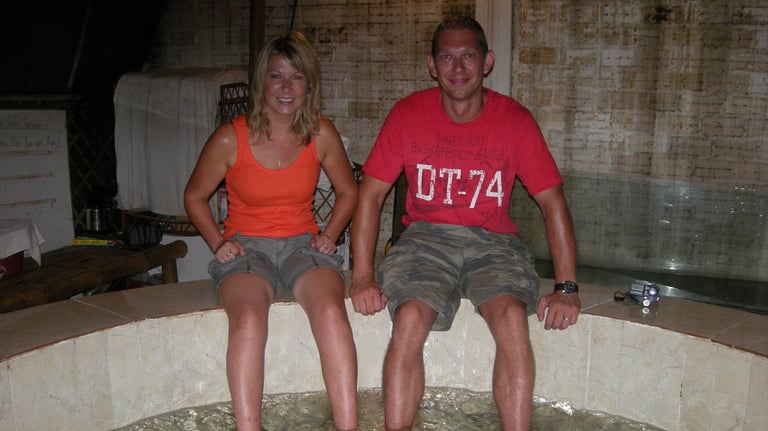

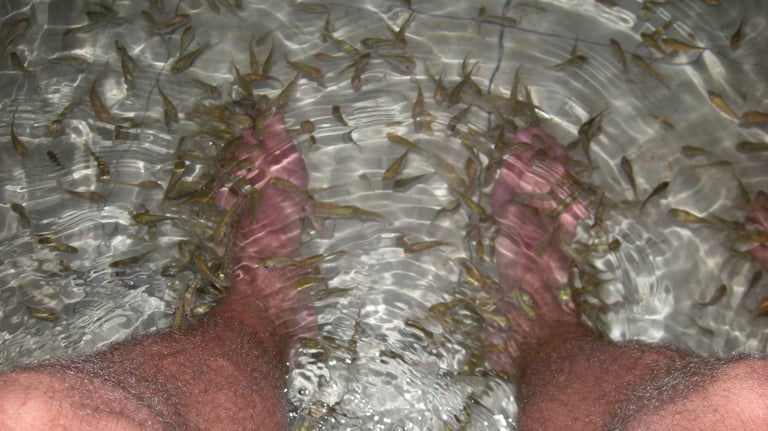

The following morning as agreed we were picked up by our tuk tuk driver and taken to the main Angkor Wat complex to watch the sun rise. We were initially surprised at how many people were also there, but sadly quite disappointed as thick cloud stopped us from seeing the sun rise!
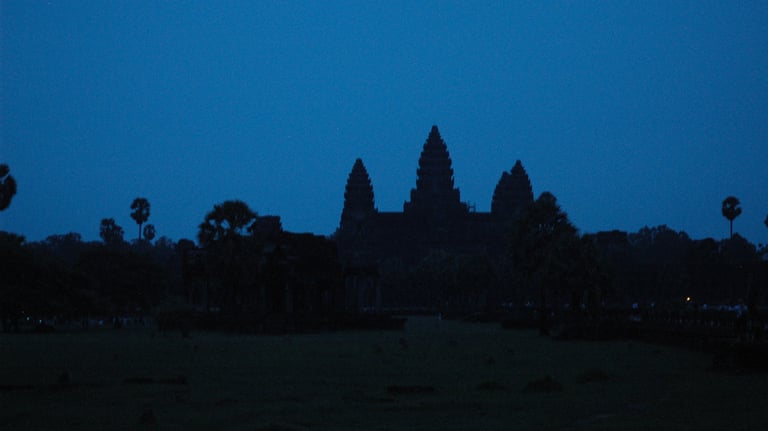

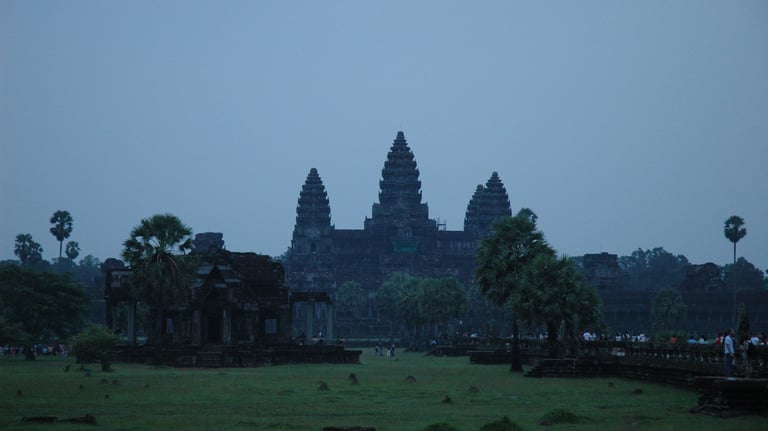

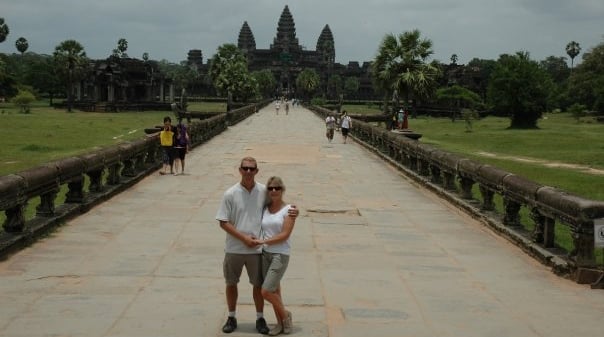

Following the lack of excitement of the sunrise our driver took us to the Temple of Ta Prohm also known as the Tomb Raider Temple since its appearance in the 2001 film "Tomb Raider". This is a stunning temple of intricately carved stone work, but lies half derelict slowly being torn apart by the strangler figs, kapok, and banyan trees that's roots hang down like decorations around its crumbling structure. We spent quite a while here exploring through the ruins.
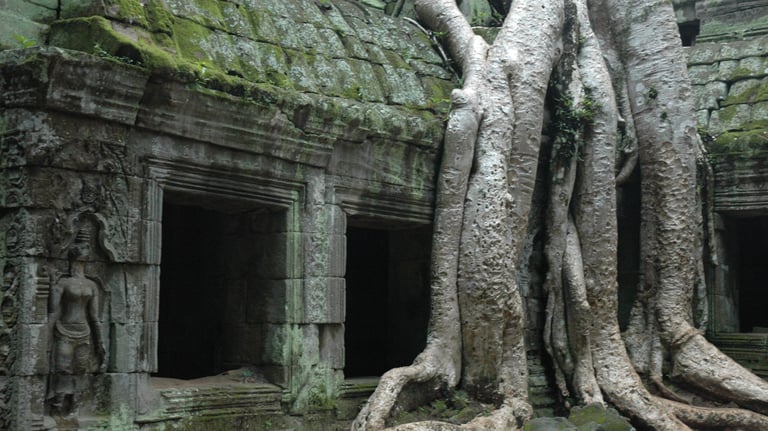

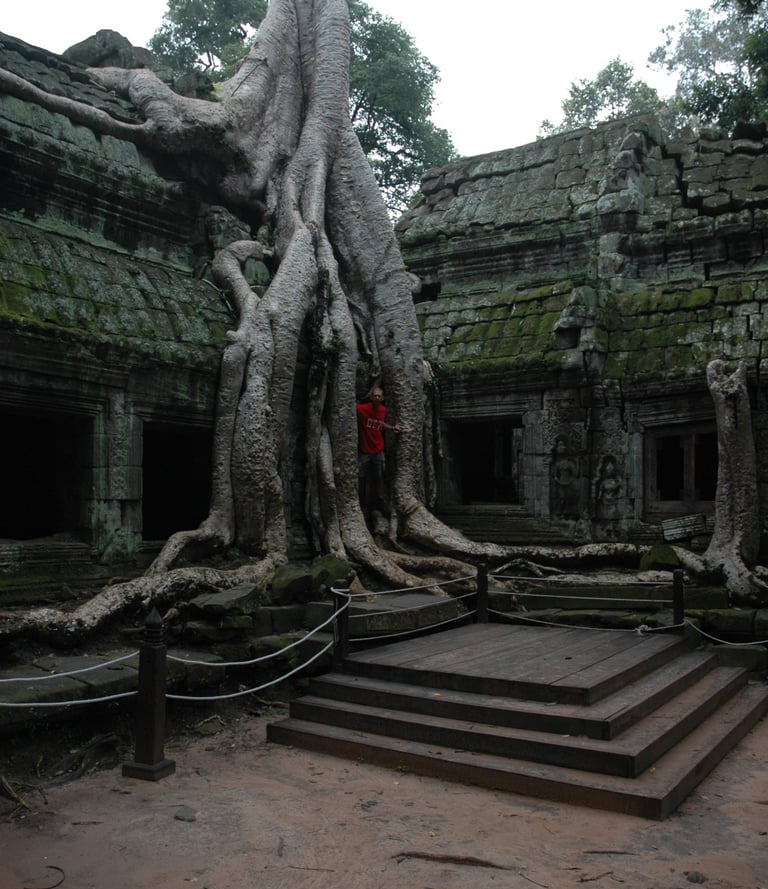

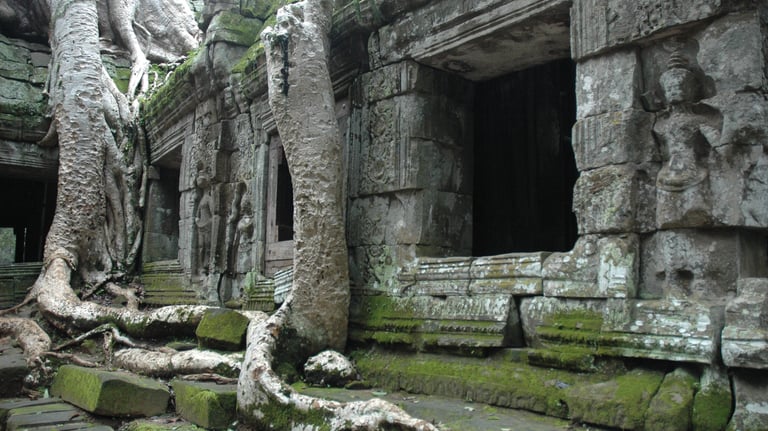

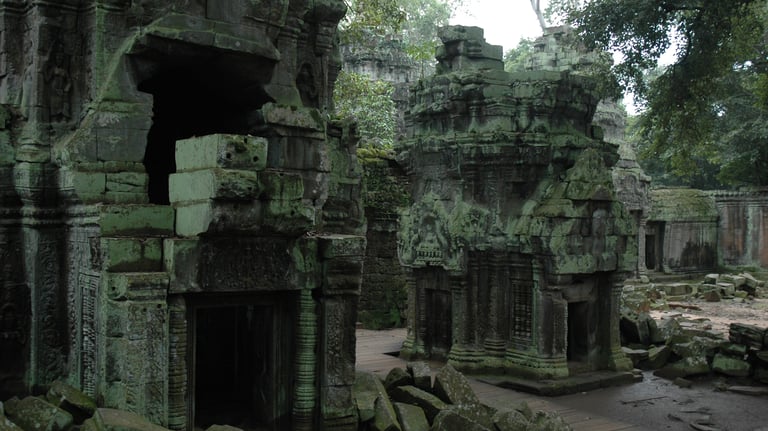

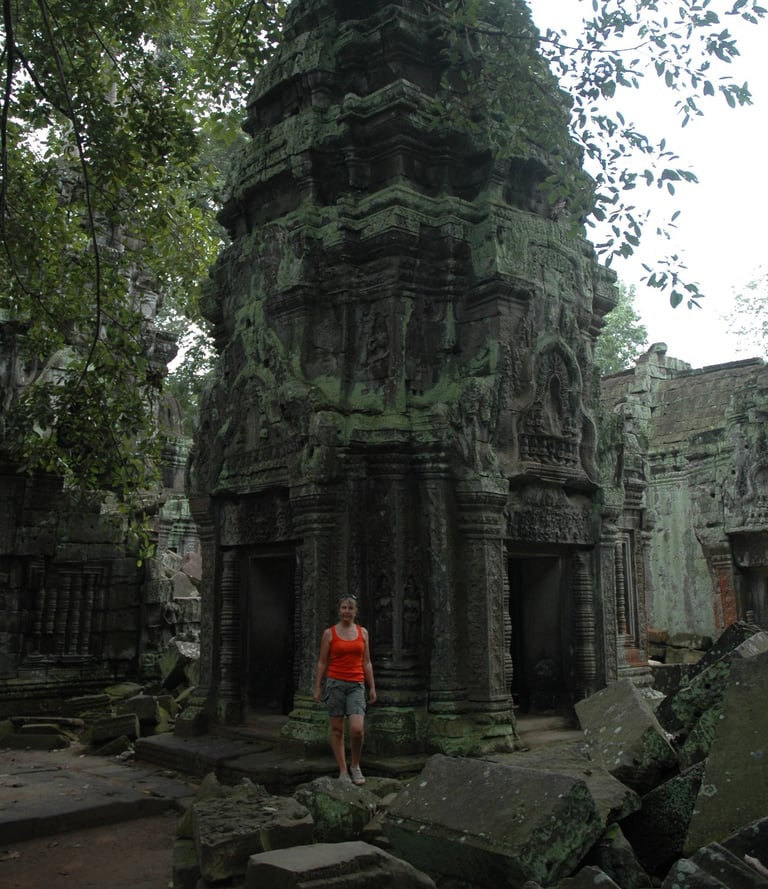

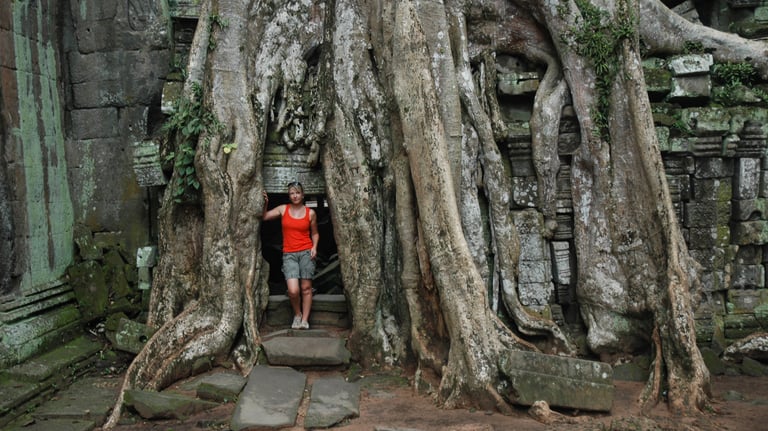

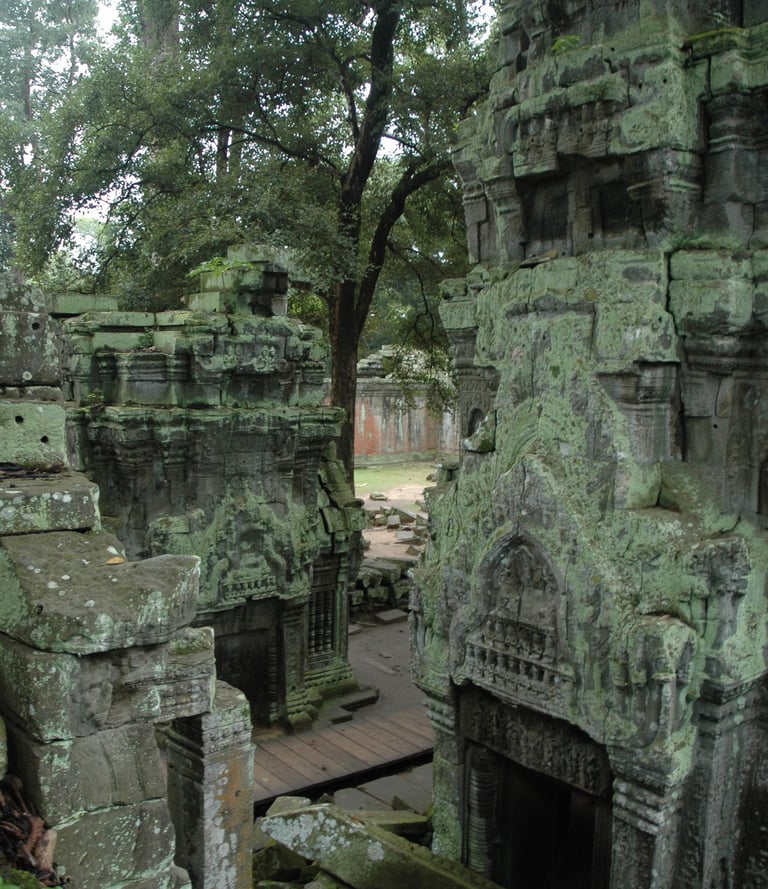

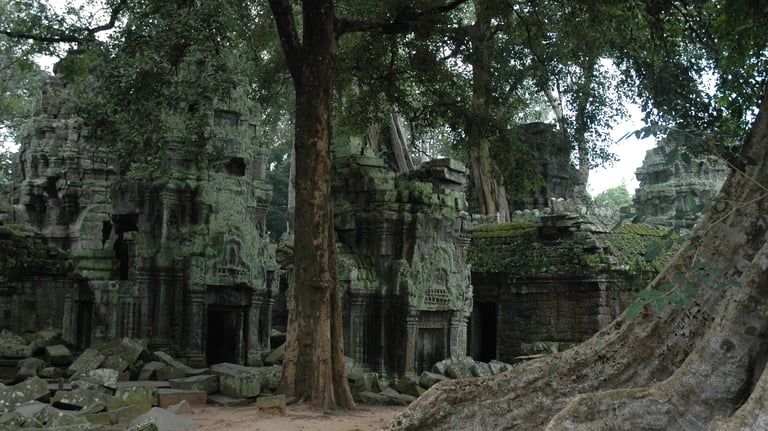

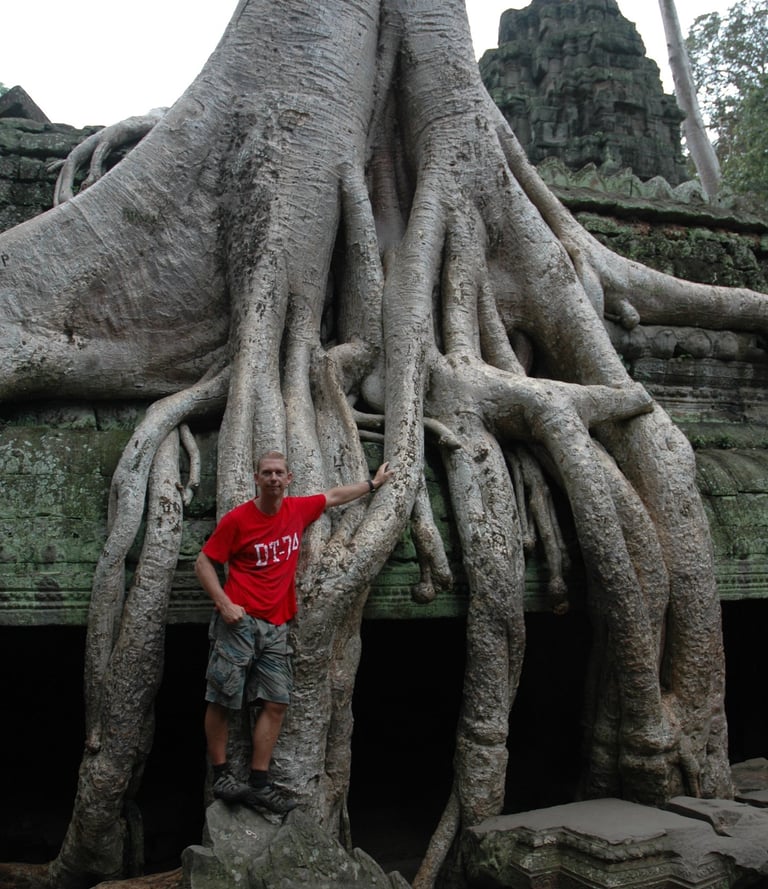

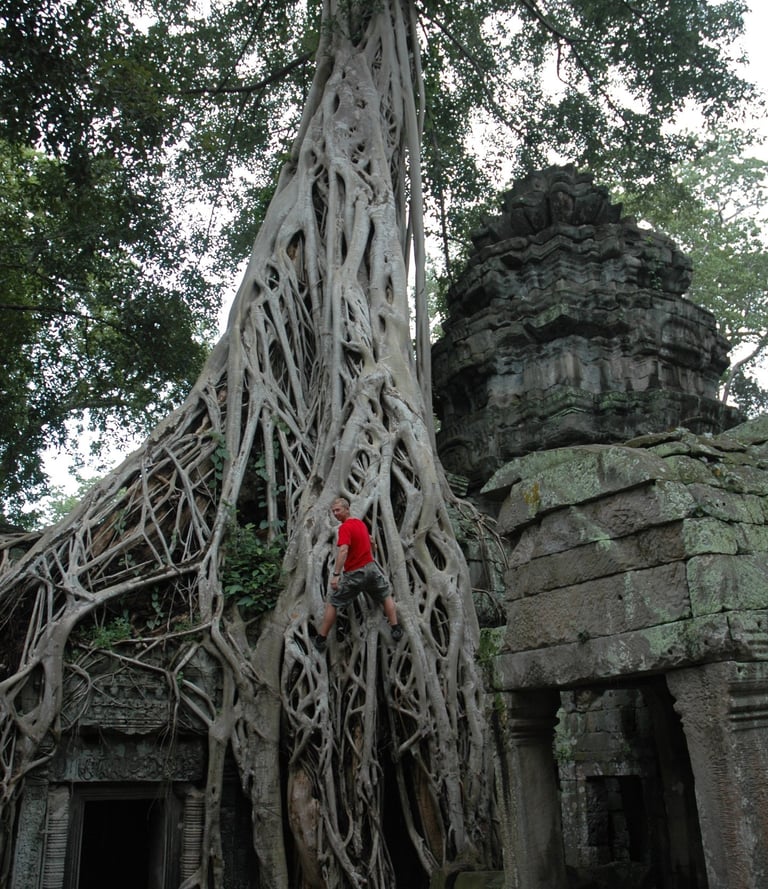

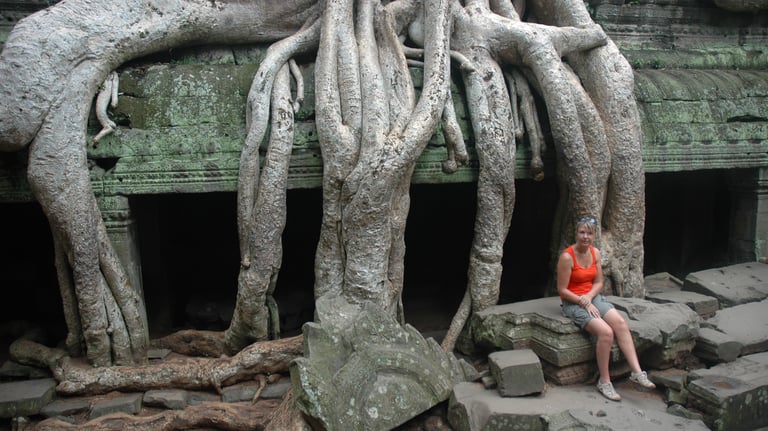

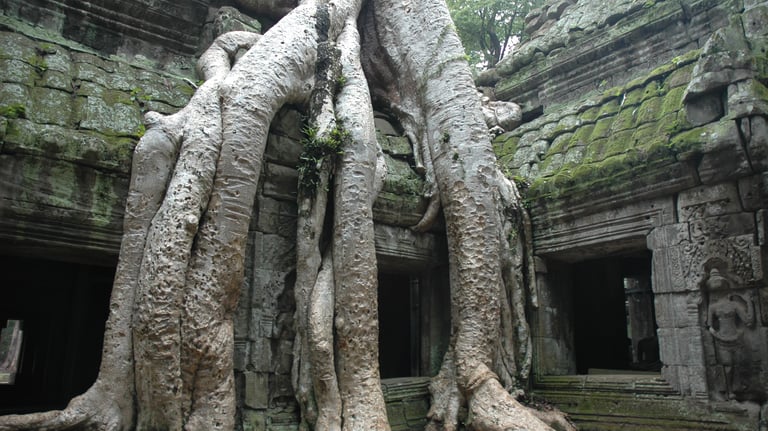

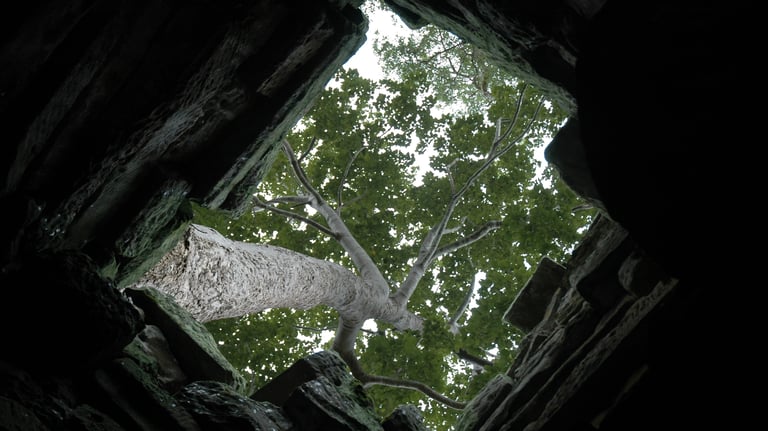

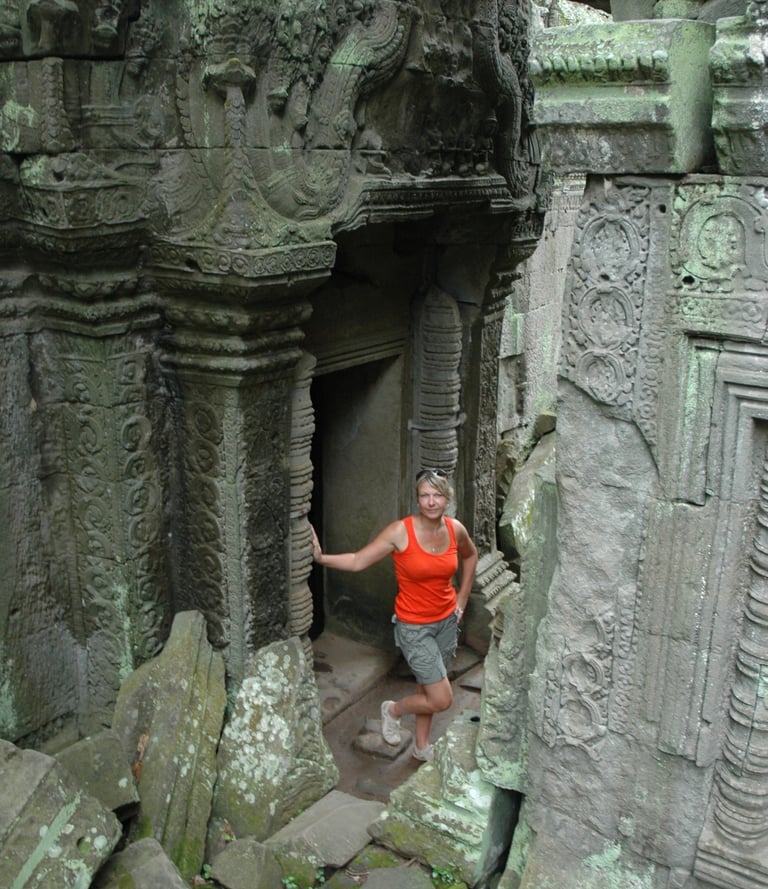

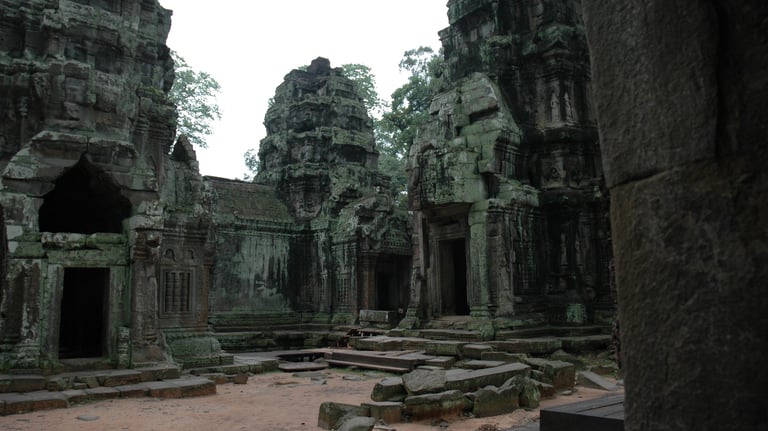

The rest of the day was spent visiting a few other temples, as there are hundreds spread out over an area covering 400 square kilometres, many of which are in a state of poor repair but some that have also been fully restored. We called through one of the small villages that are dotted around the sites. There are some stunning examples of intricate stone carving and architecture and it makes you wonder how all this could just be abandoned and left to fall into disrepair.
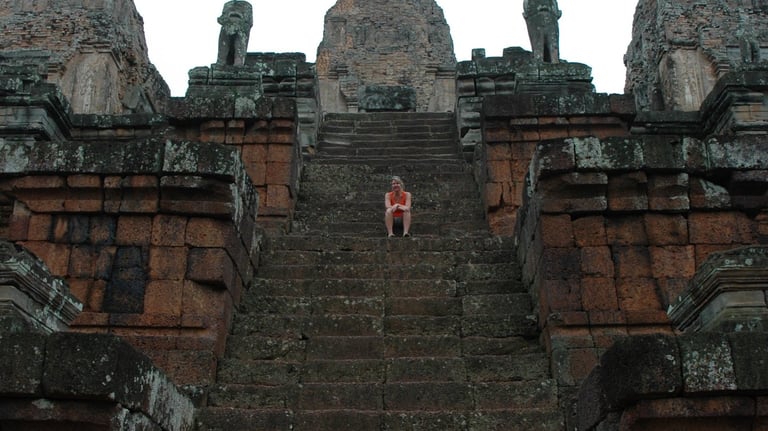

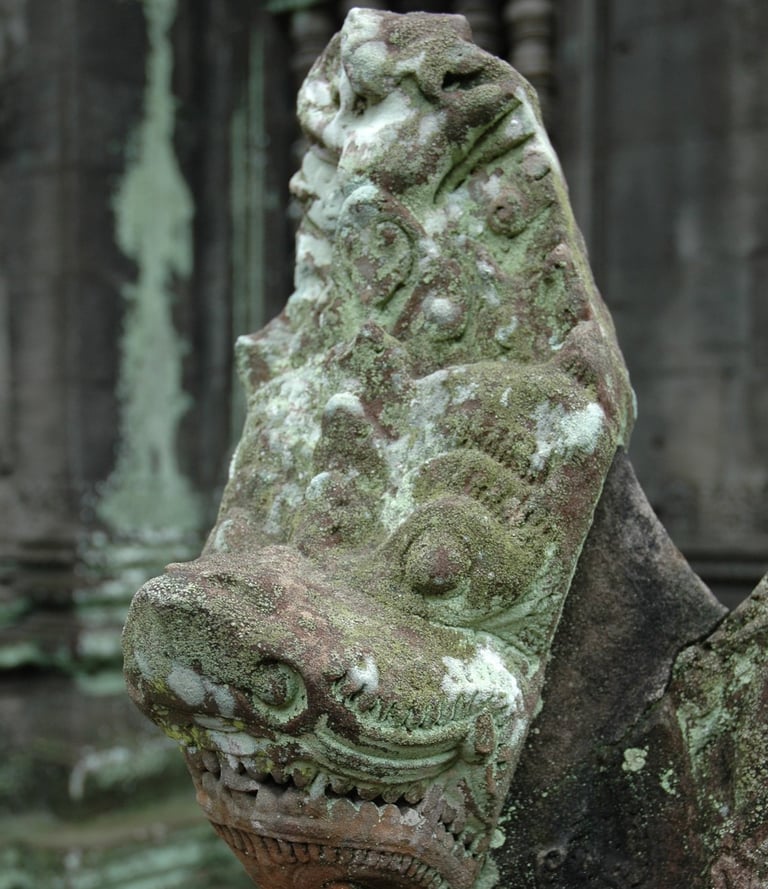

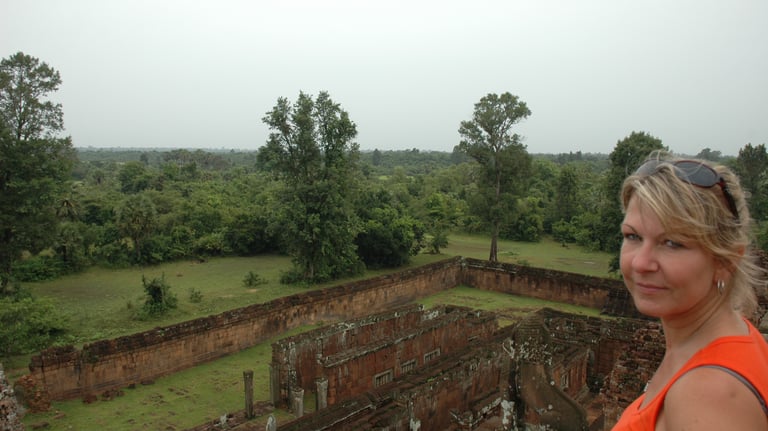

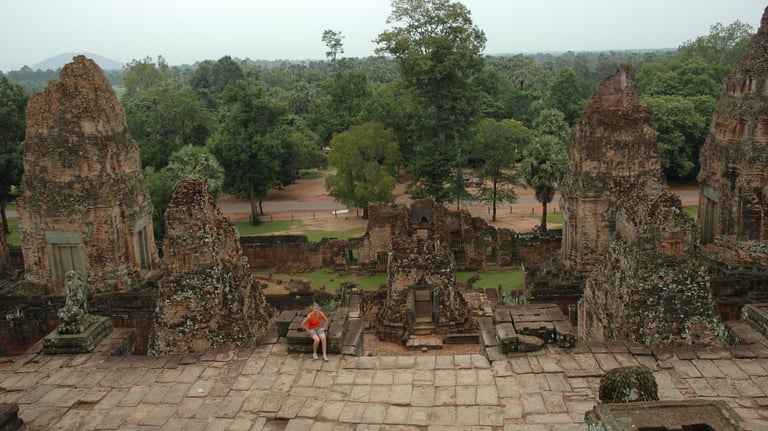

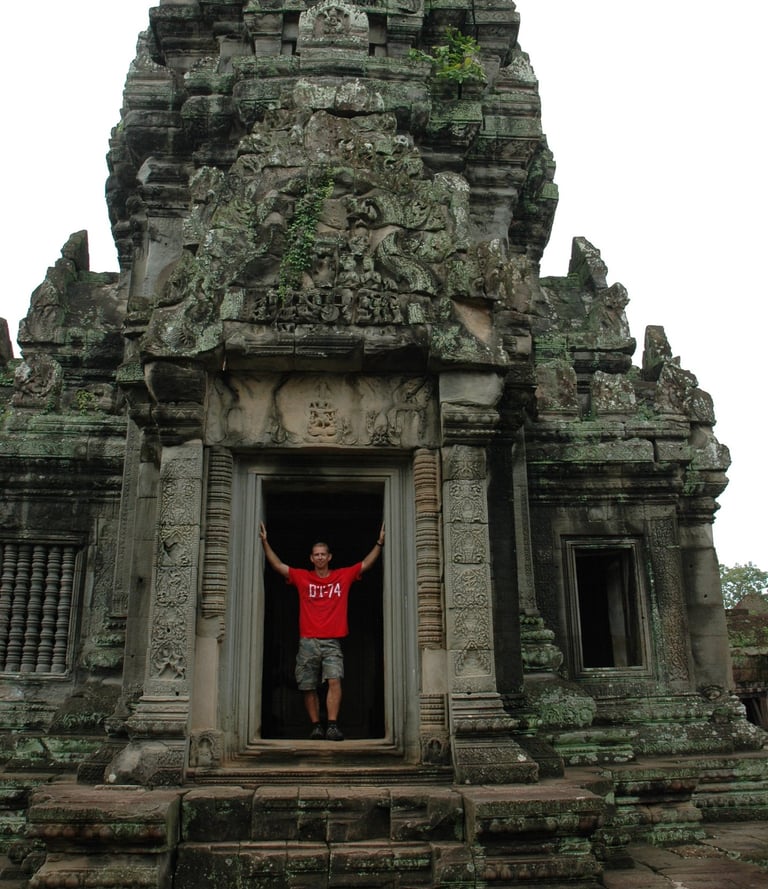

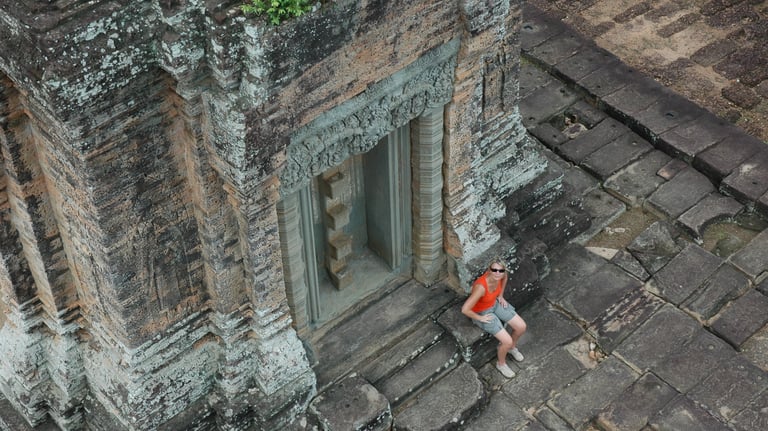

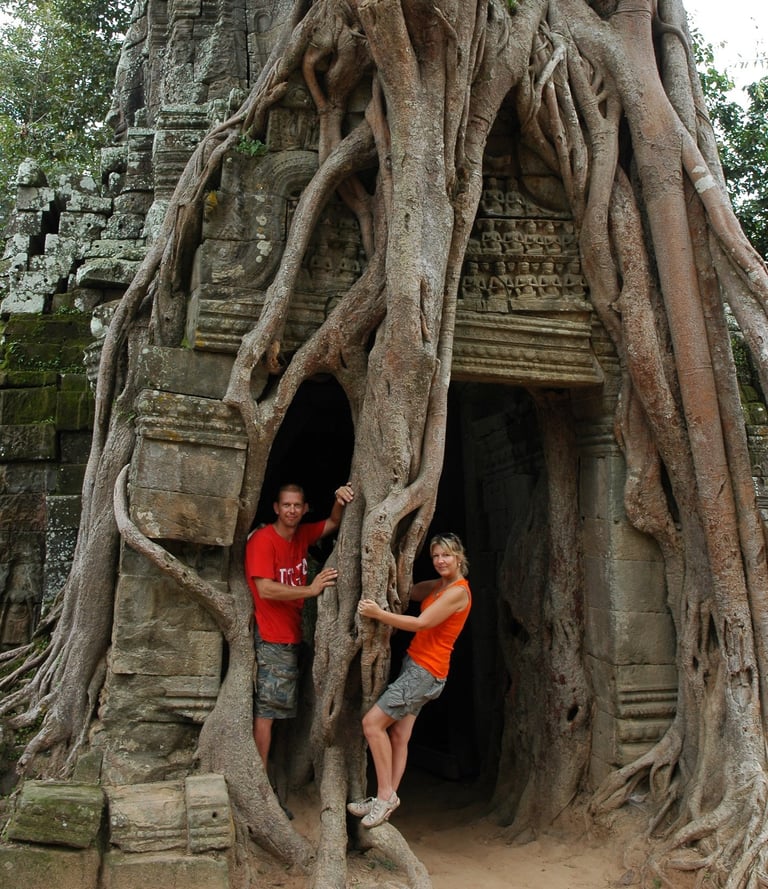

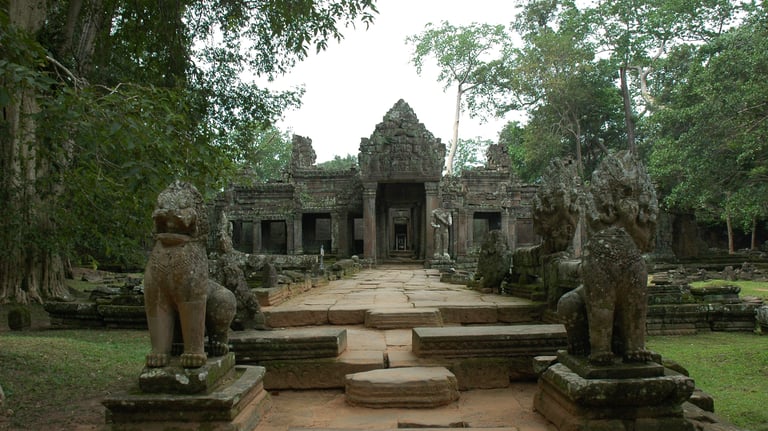

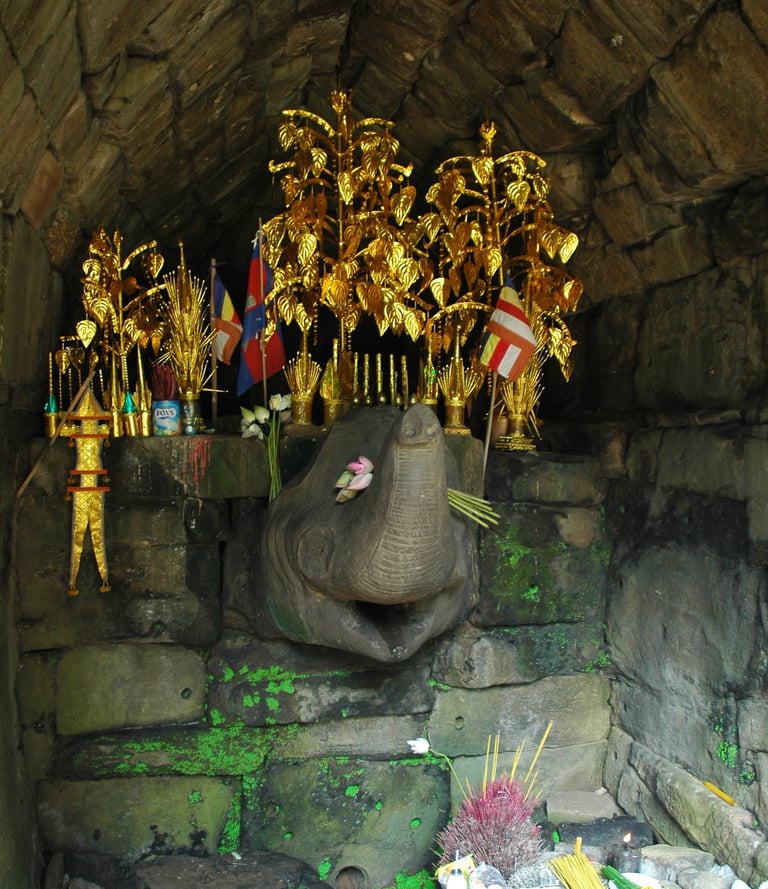

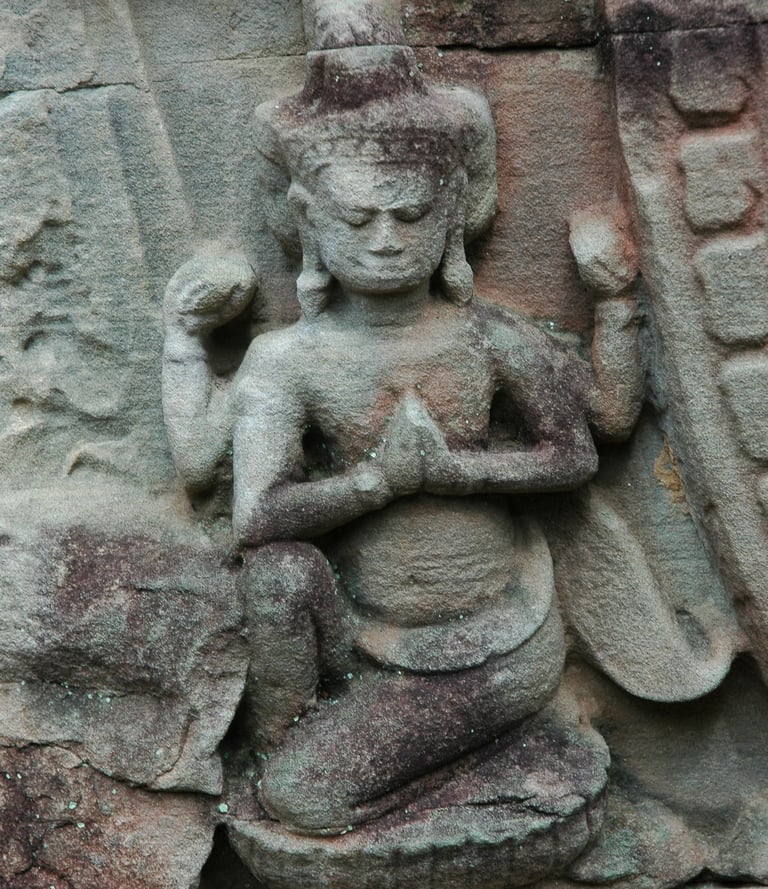

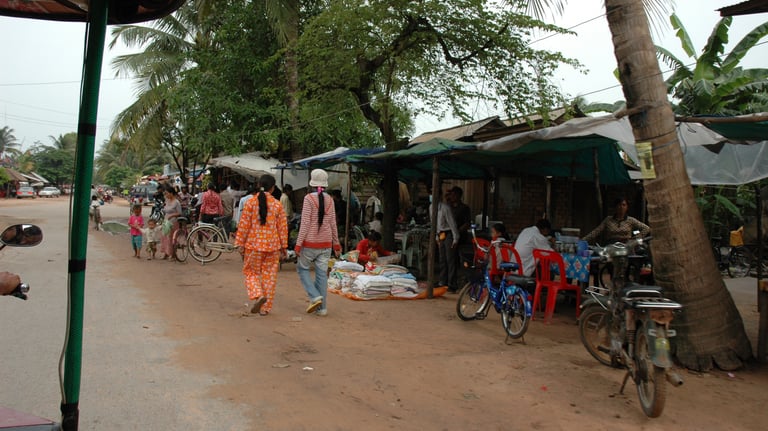

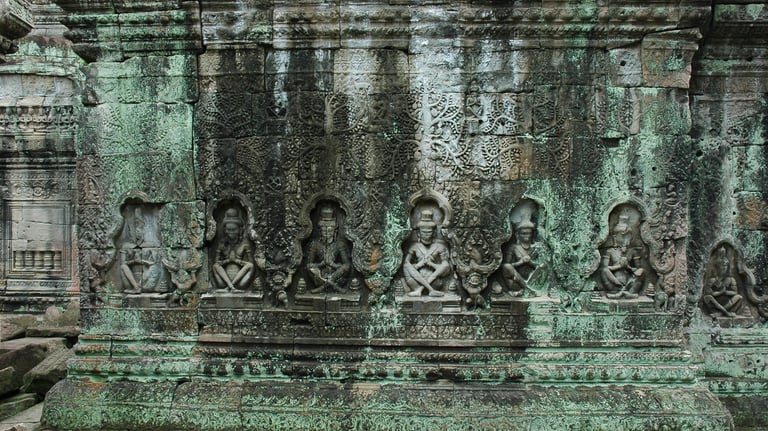

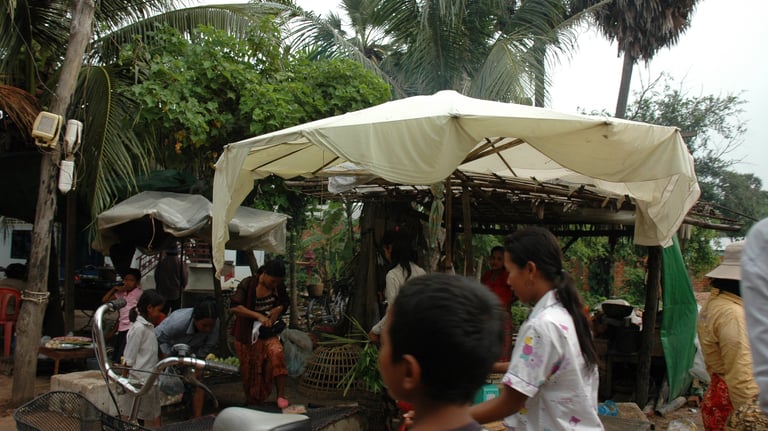

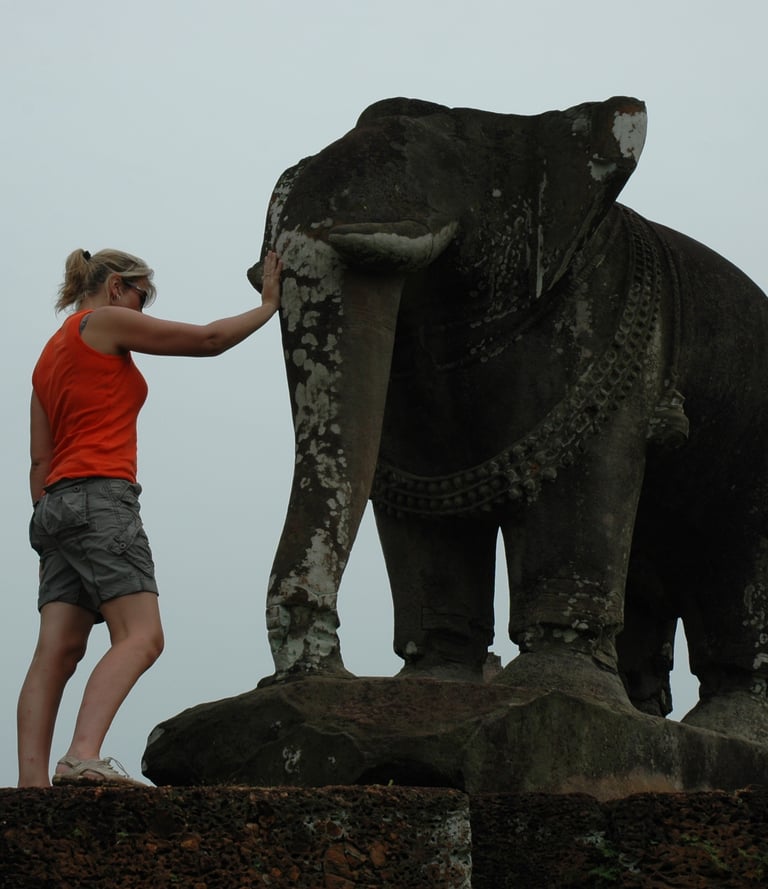

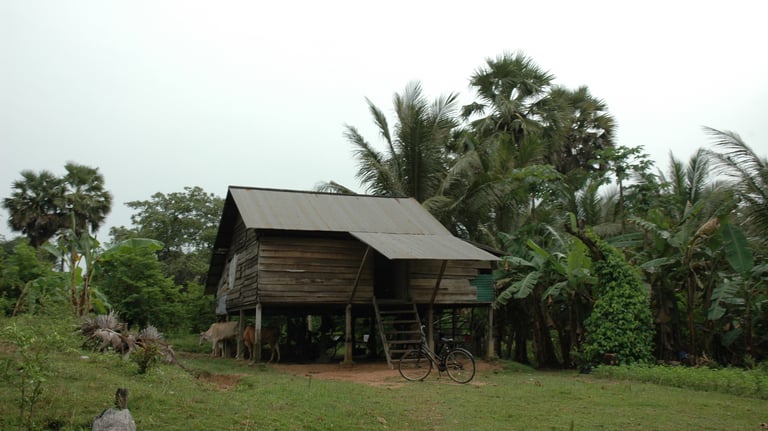

Whilst we were looking around the temples local people would stop and want to chat, they would also want you to take pictures of their children or let them take pictures of you holding their children. We were happy to oblige and Tracey almost got carried away with a couple of the babies, I thought they might be coming home with us! Finally after a long day we returned to our accommodation and another few beers in Pub Street (It would have been rude not to at $0.50 each)
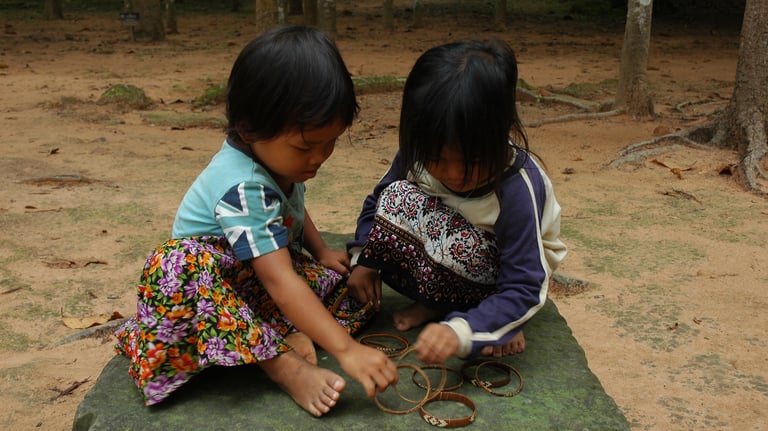

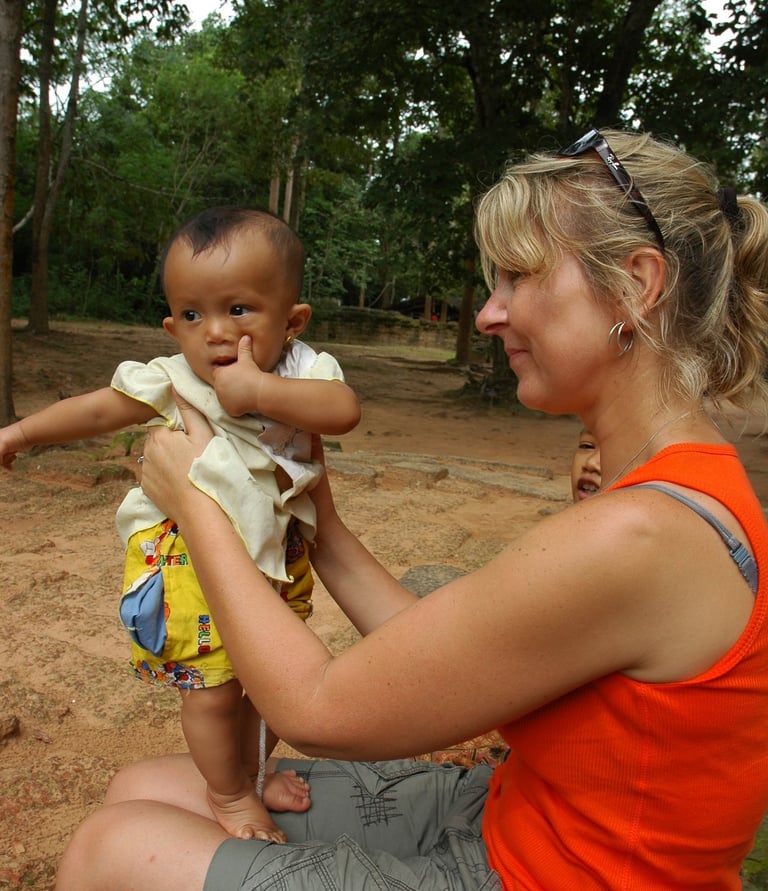

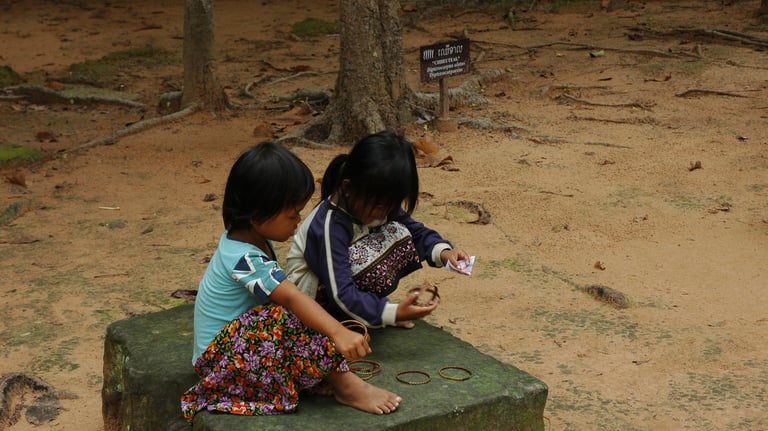

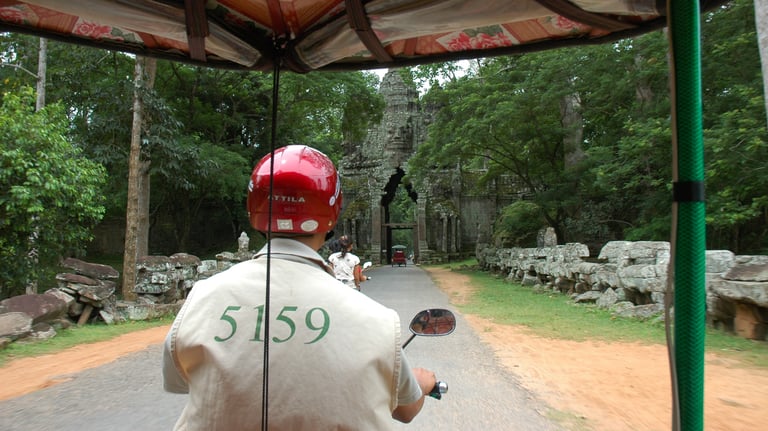

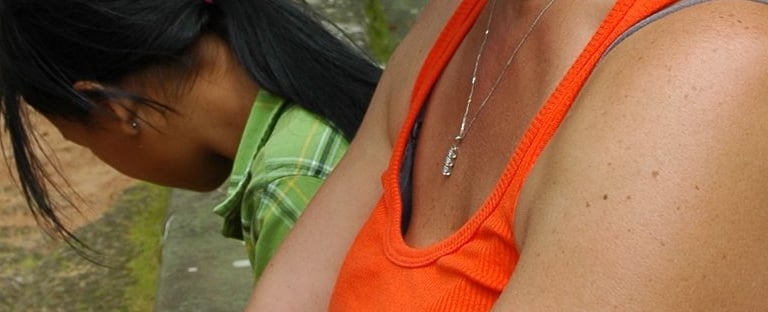

The next morning we decided to hire peddle cycles to return to Angkor wat and Bayon Temples under our own steam. Both of these temples are incredible, Angkor Wat is considered by Guinness world records as the largest religious structure in the world and Bayon is covered in incredibly well carved giant faces of Buddha, both temples really impress and the great thing is there are no restrictions so you can go practically anywhere you want to within these structures.
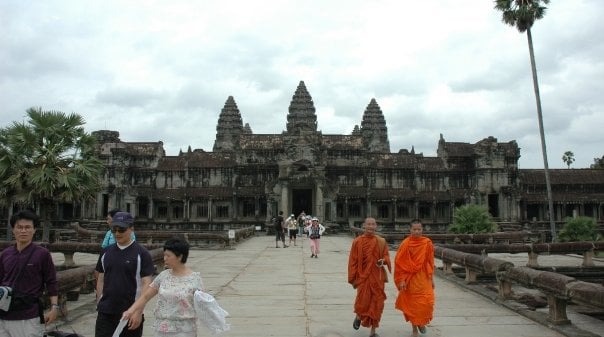

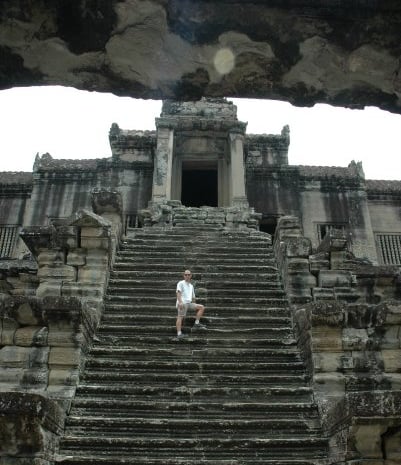

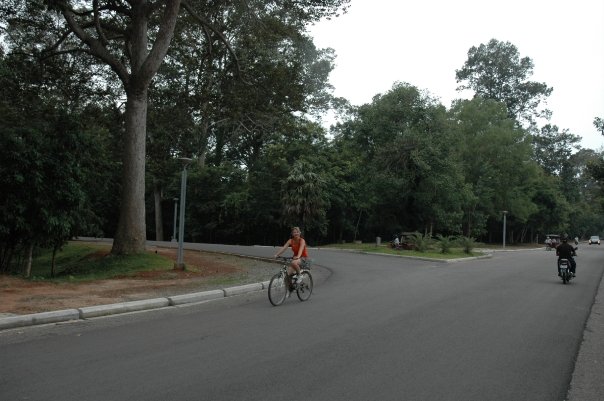

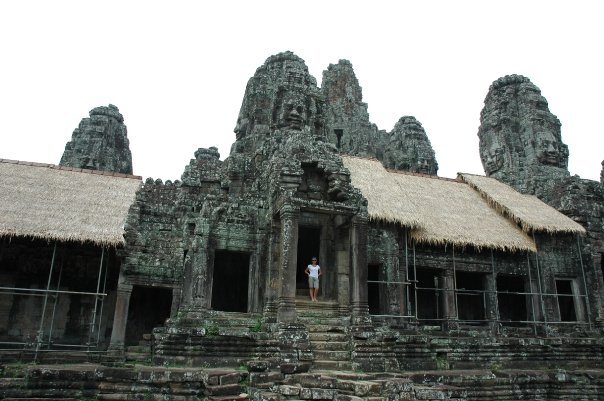

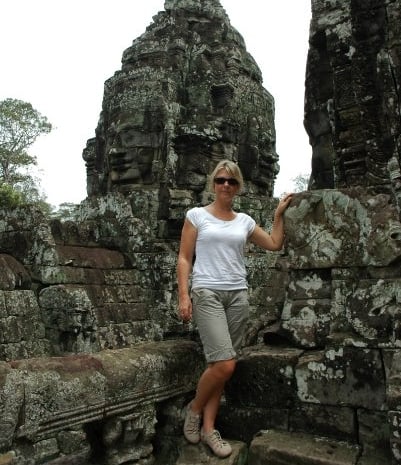

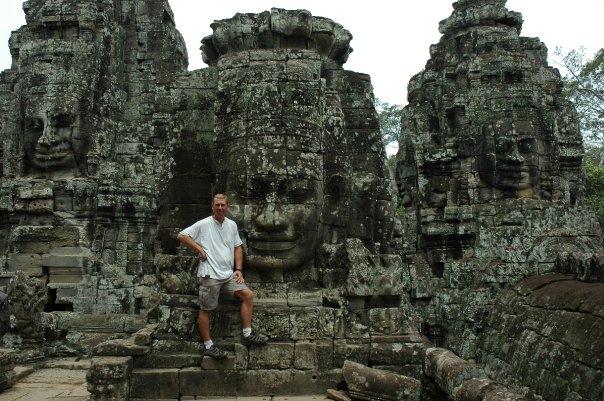

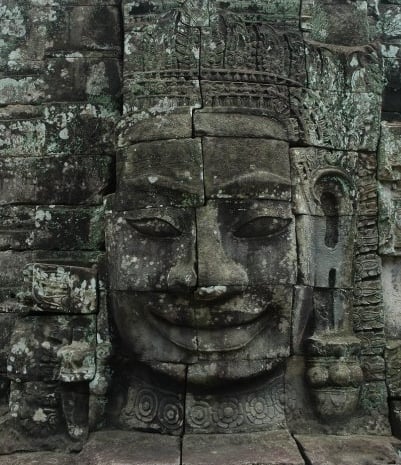

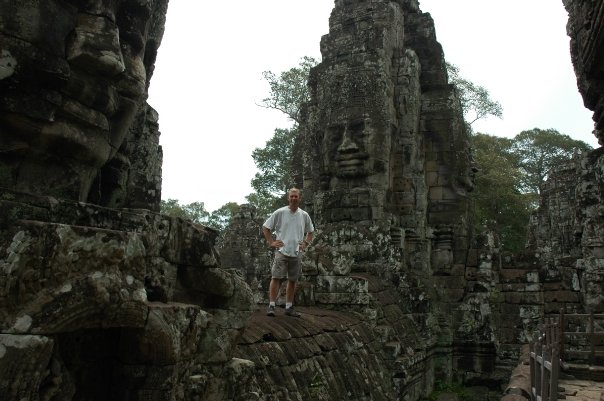

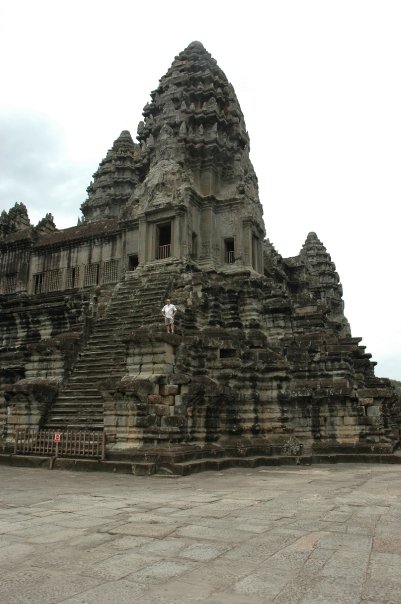

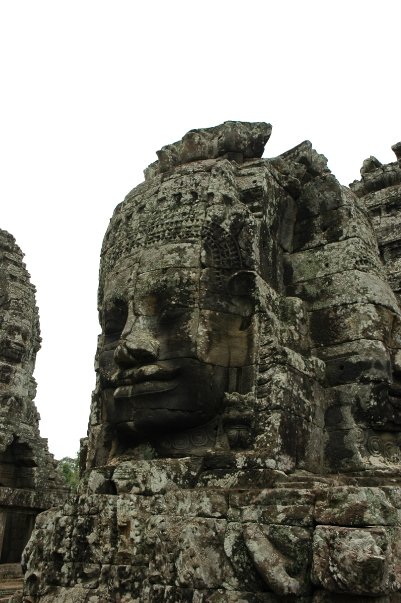

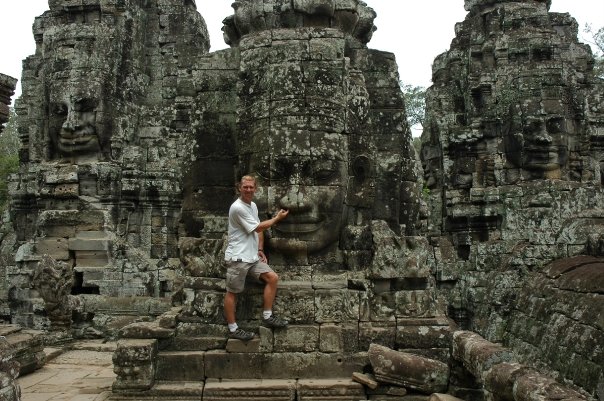

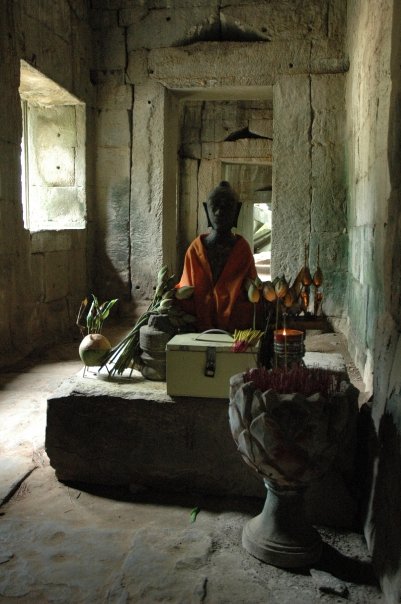

After Cycling back to town, as it was our last day in Cambodia we packed our rucksacks ready to make an early start in the morning and then went out for a few last beers in the bars on Pub Street. The morning was a new adventure, another long distance bus across the border, this time into Thailand and on to Bangkok.
